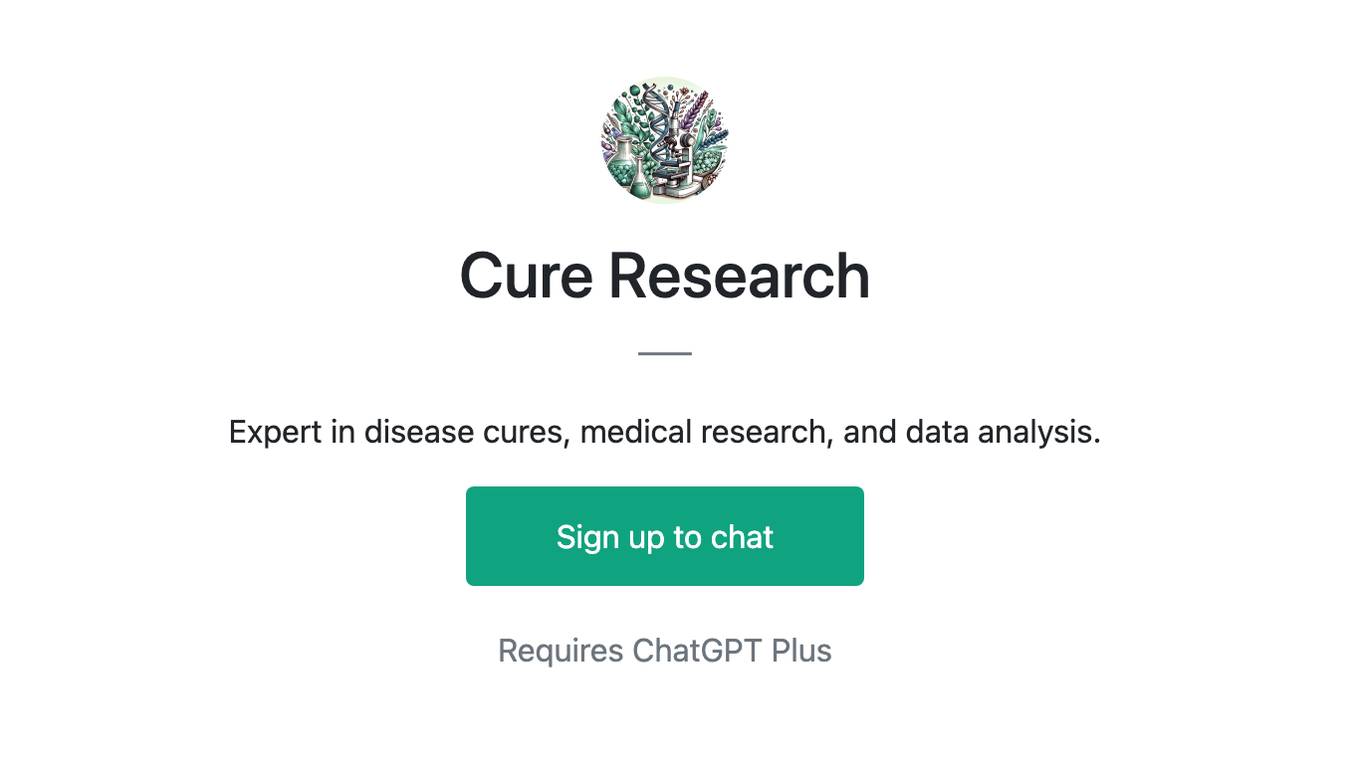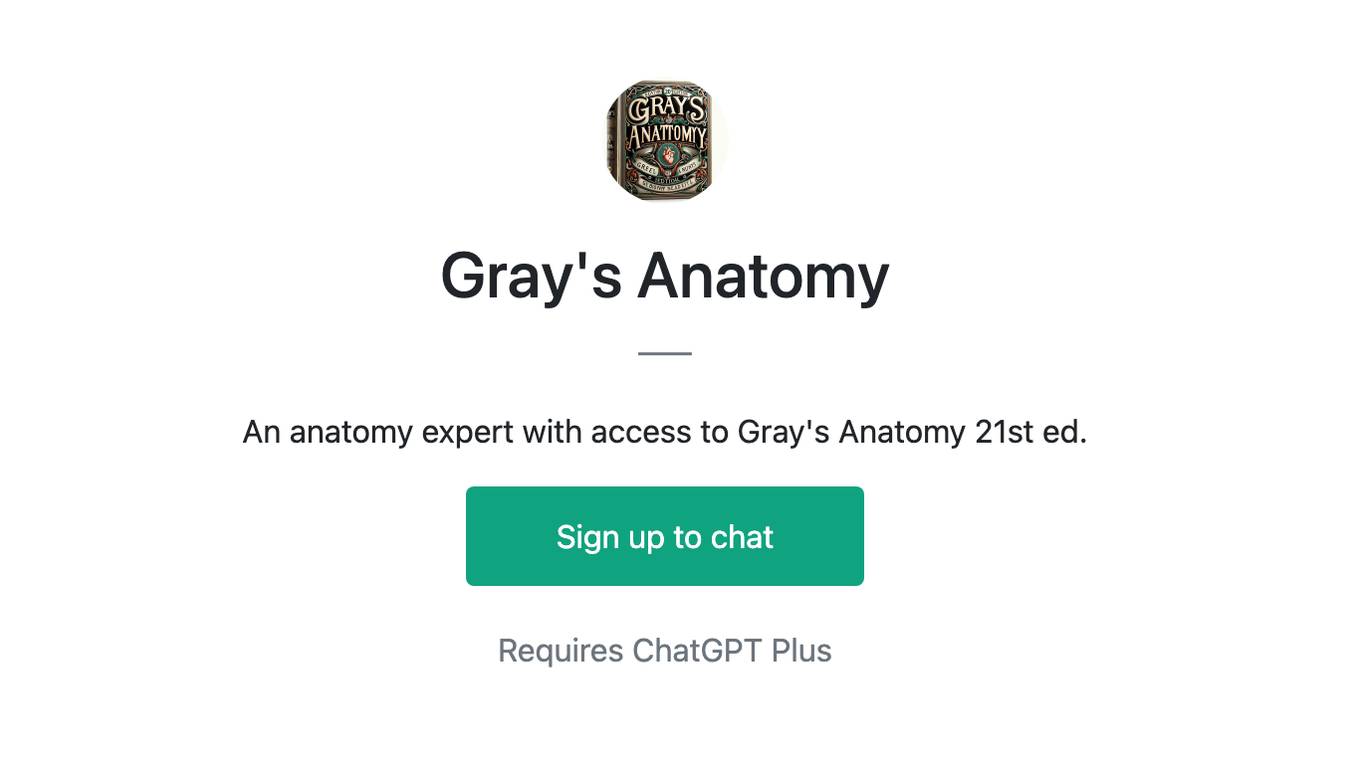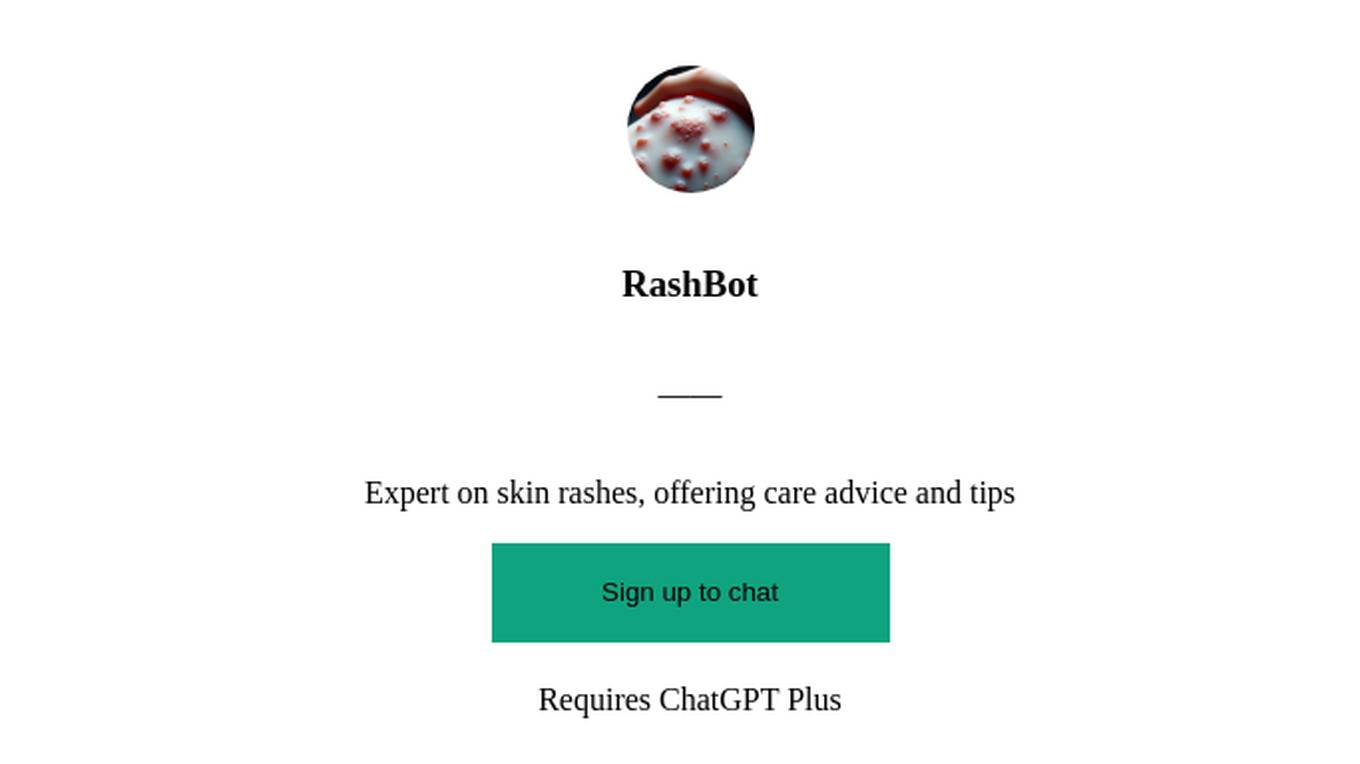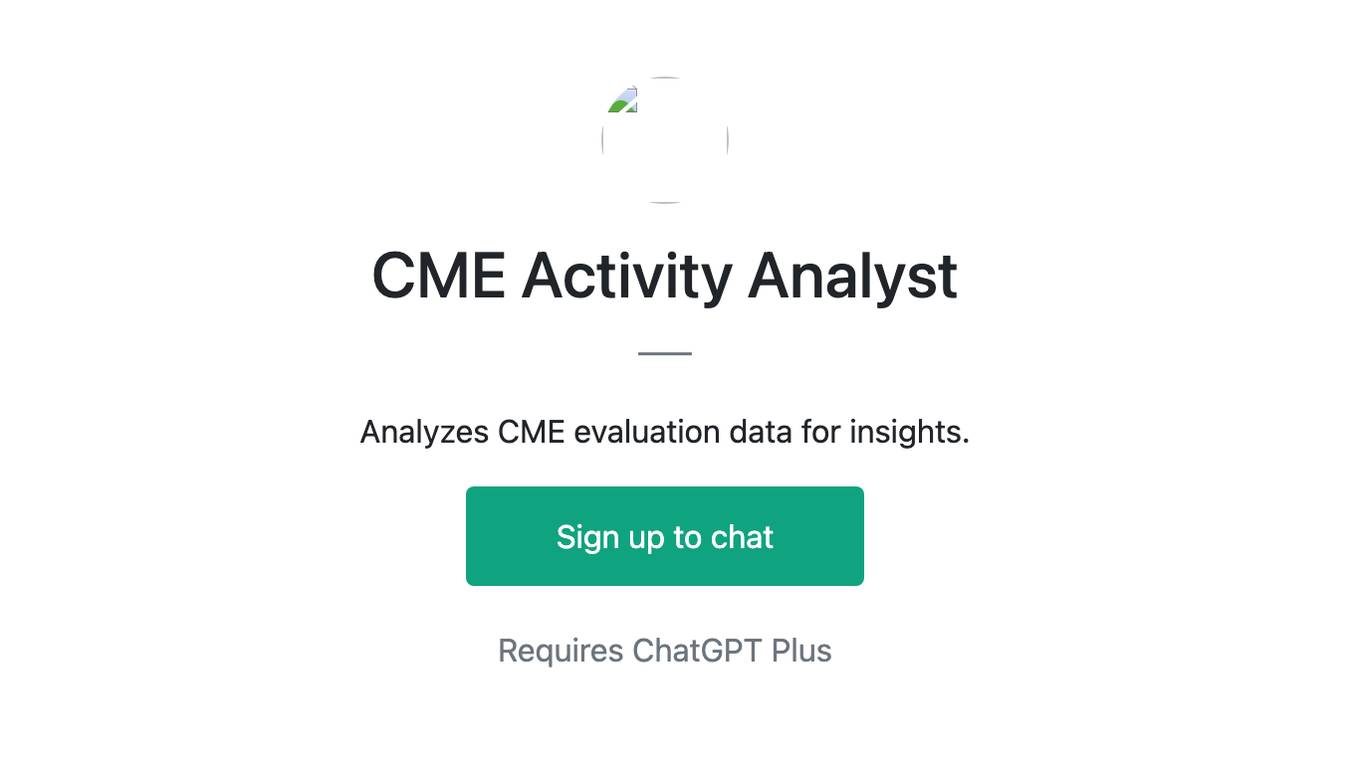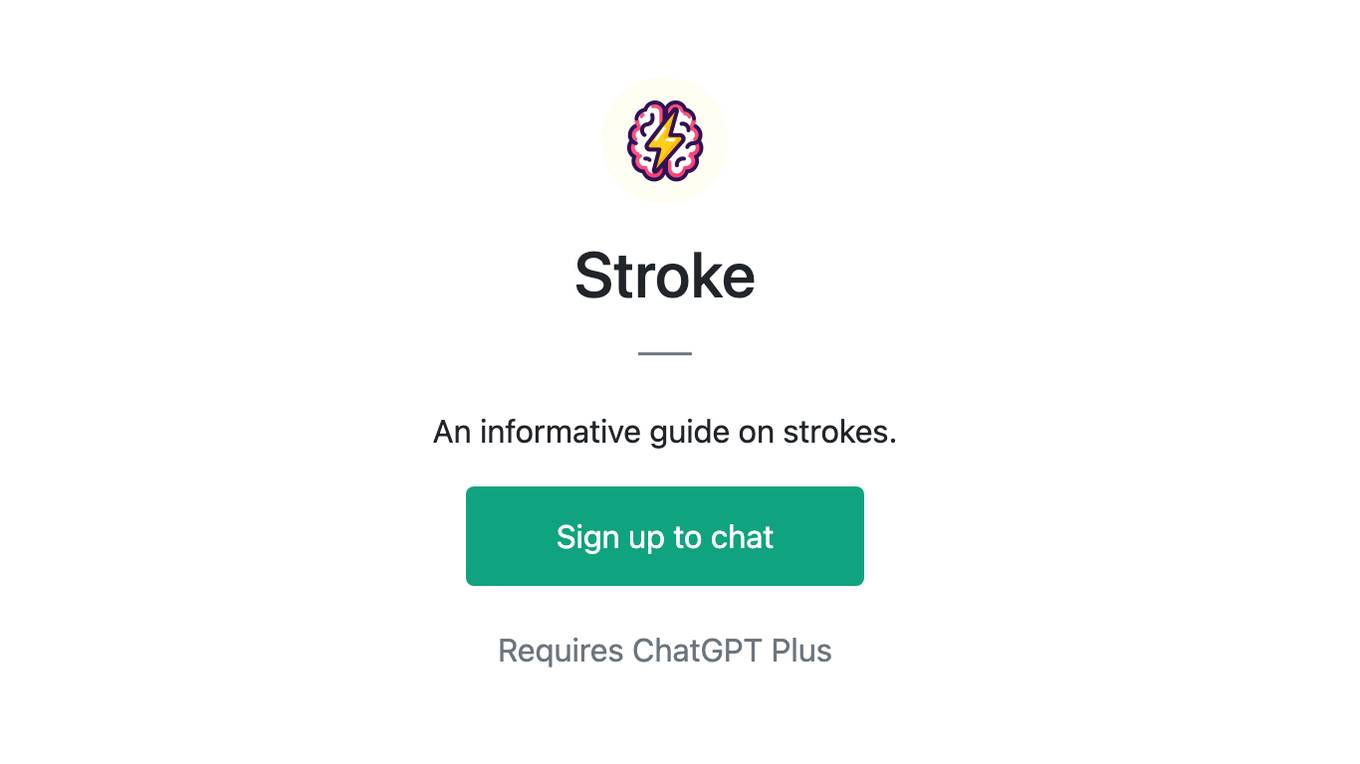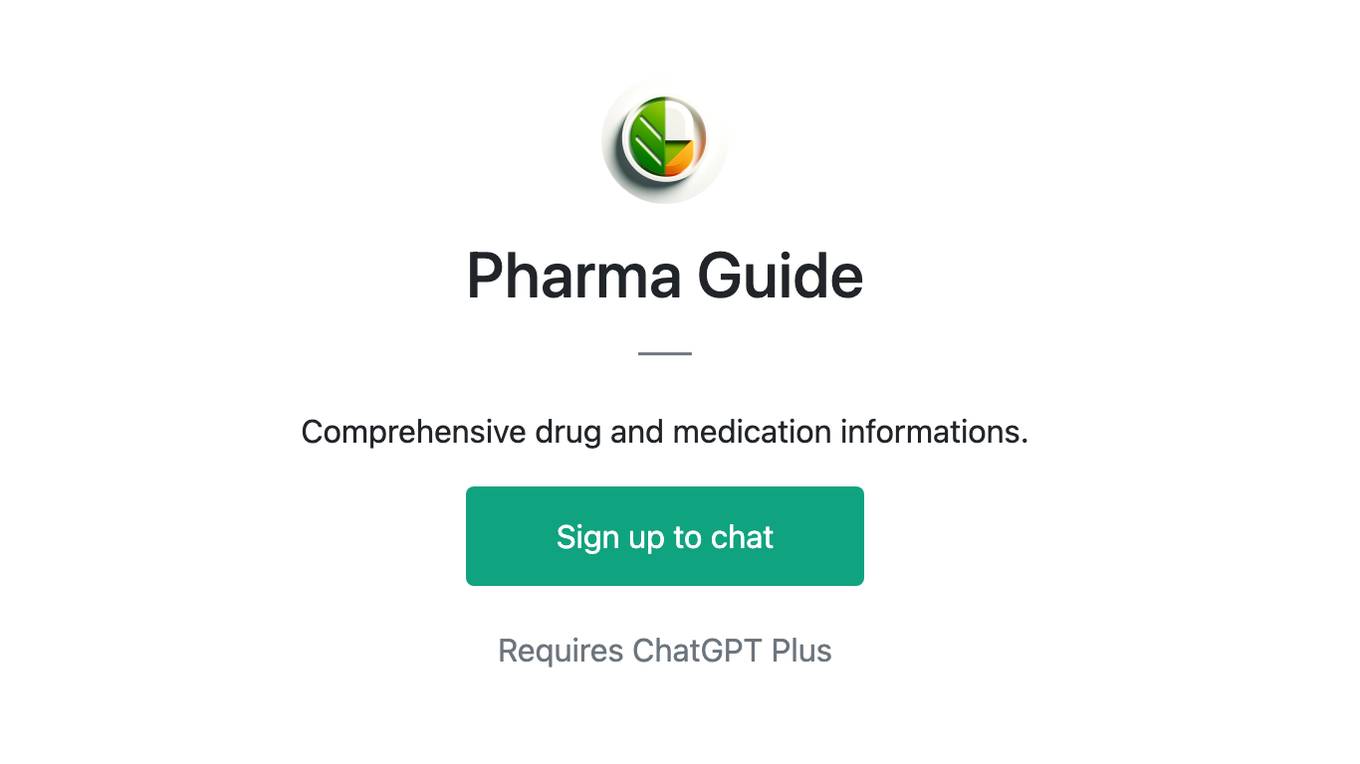Best AI tools for< Identify Medicinal Plants >
20 - AI tool Sites
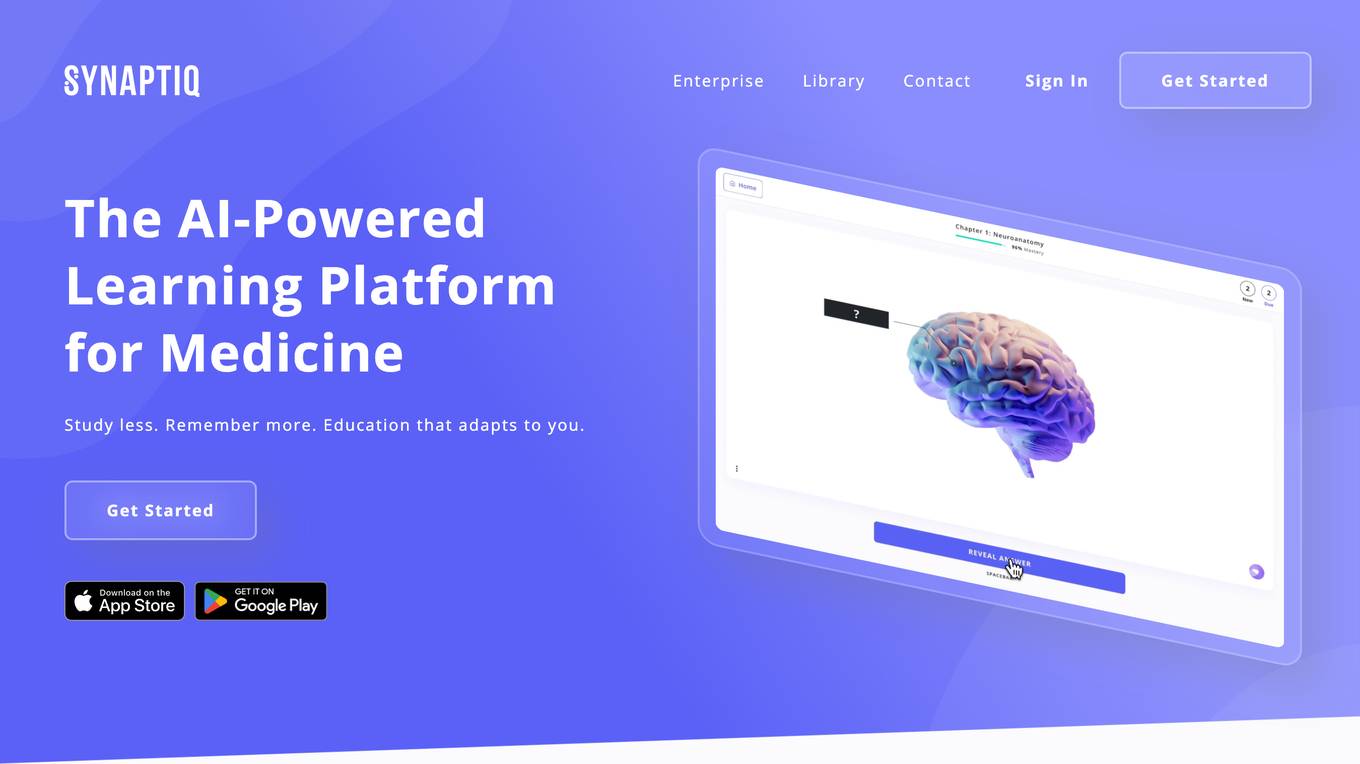
Ora AI
Ora AI is an evidence-based study platform designed by top doctors and educators to guide medical students from M1 to MD. It utilizes AI technology to personalize study plans, identify weaknesses, and provide UWorld-equivalent questions for effective learning. With over 24,000 students using Ora, it simplifies the complex journey of medical school by leveraging learning science to optimize study sessions.
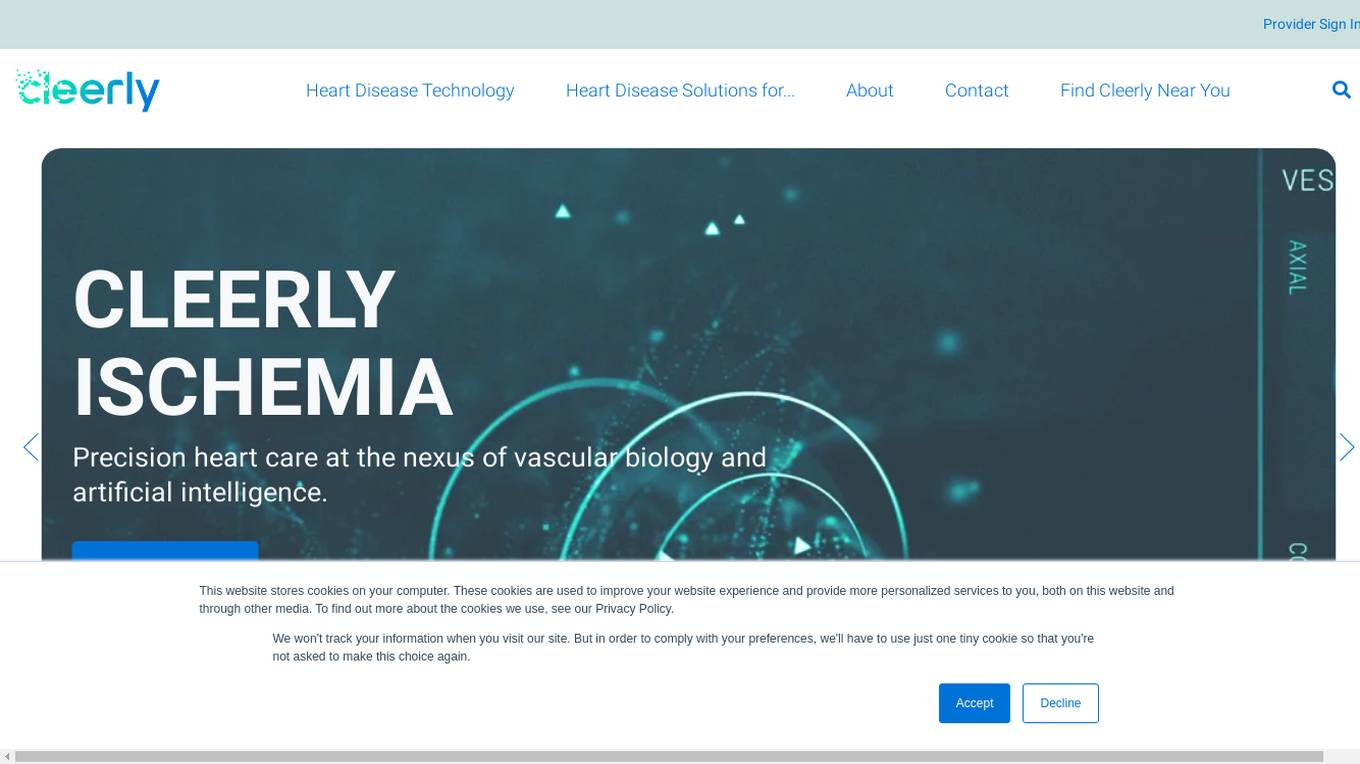
Cleerly
Cleerly is a digital healthcare company transforming the way clinicians approach the treatment of heart disease. Our clinically-proven, AI-based digital care platform works with coronary computed tomography angiography (CCTA) imaging to help clinicians precisely identify and define atherosclerosis earlier, so they can provide personalized, life-saving treatment plans for all patients throughout their care continuum. We measure atherosclerosis - plaque build-up in the heart's arteries - not indirect markers such as risk factors and symptoms of disease. Our AI-enabled digital care pathway offers simpler, faster, more accurate heart disease evaluation and reporting that's tailored to each stakeholder, improving overall clinical and financial outcomes.
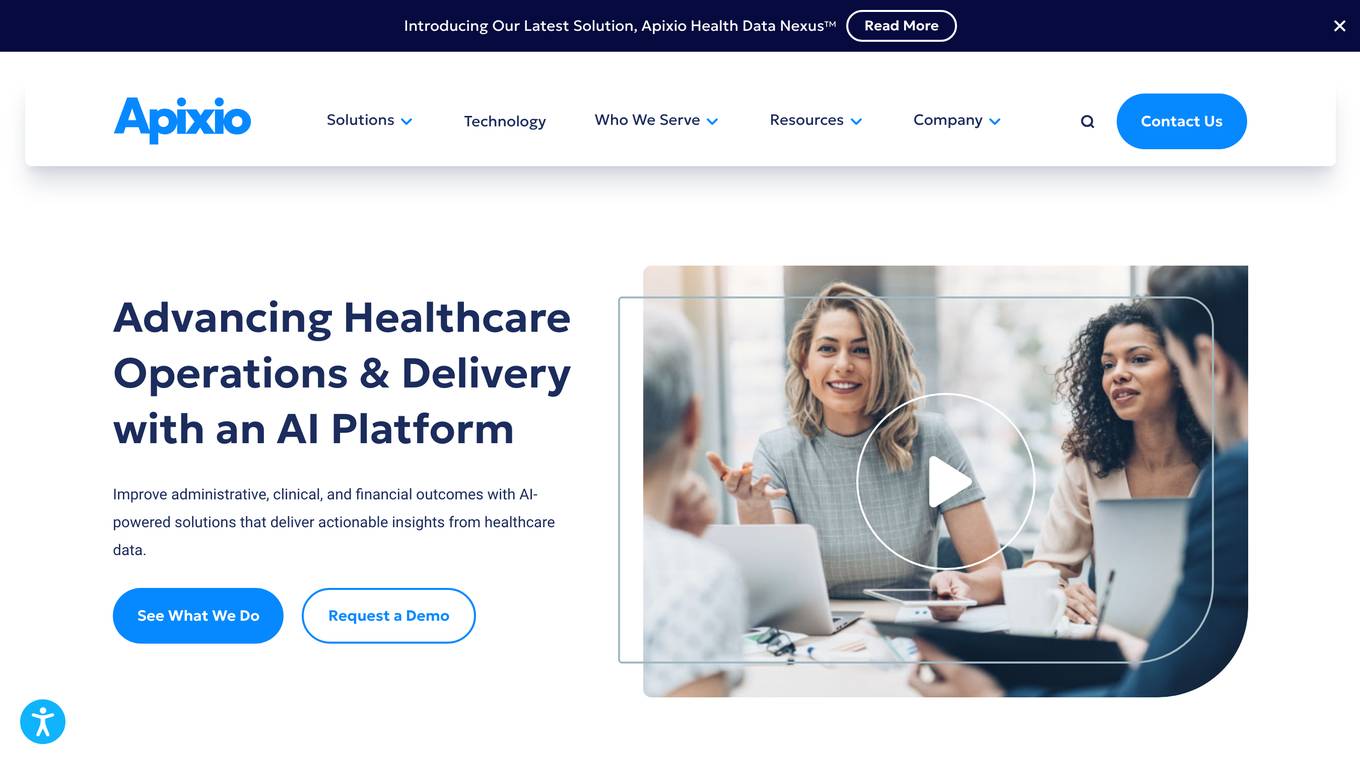
Apixio
Apixio is a healthcare AI company that provides solutions for health plans, providers, and ACOs. Their AI-powered platform helps organizations improve administrative, clinical, and financial outcomes. Apixio's solutions include risk adjustment, payment integrity, health data management, and AI-as-a-service.
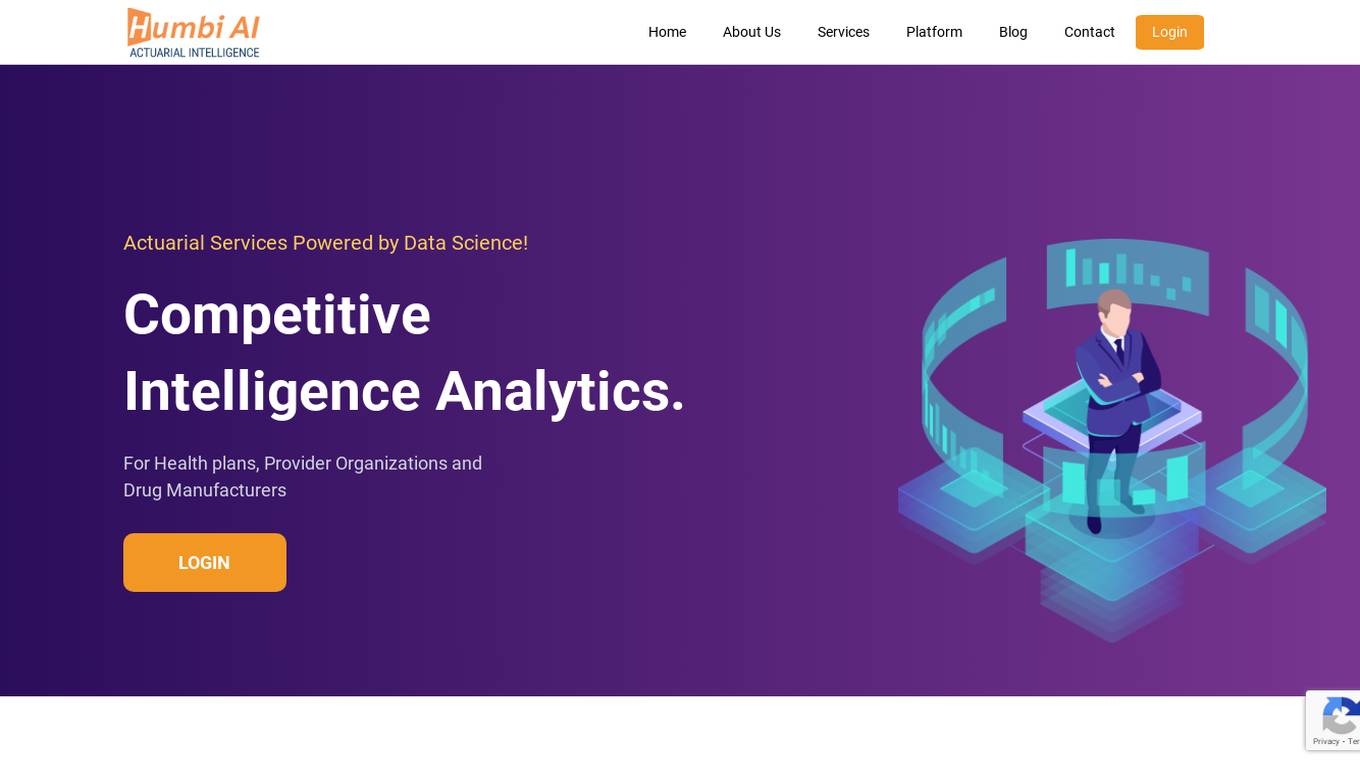
Humbi AI
Humbi AI is an AI-powered platform offering actuarial services for healthcare organizations, health plans, provider organizations, and drug manufacturers. The platform combines data science and actuarial expertise to provide competitive intelligence analytics, helping clients identify opportunities and manage risks effectively. Humbi AI offers a range of services from data management to actuarial design, incorporating knowledge from various fields such as medical science and technology. The platform includes tools for Medicare Advantage strategy building, provider performance comparison, pharmacy management, and access to medical and pharmacy data for millions of members.
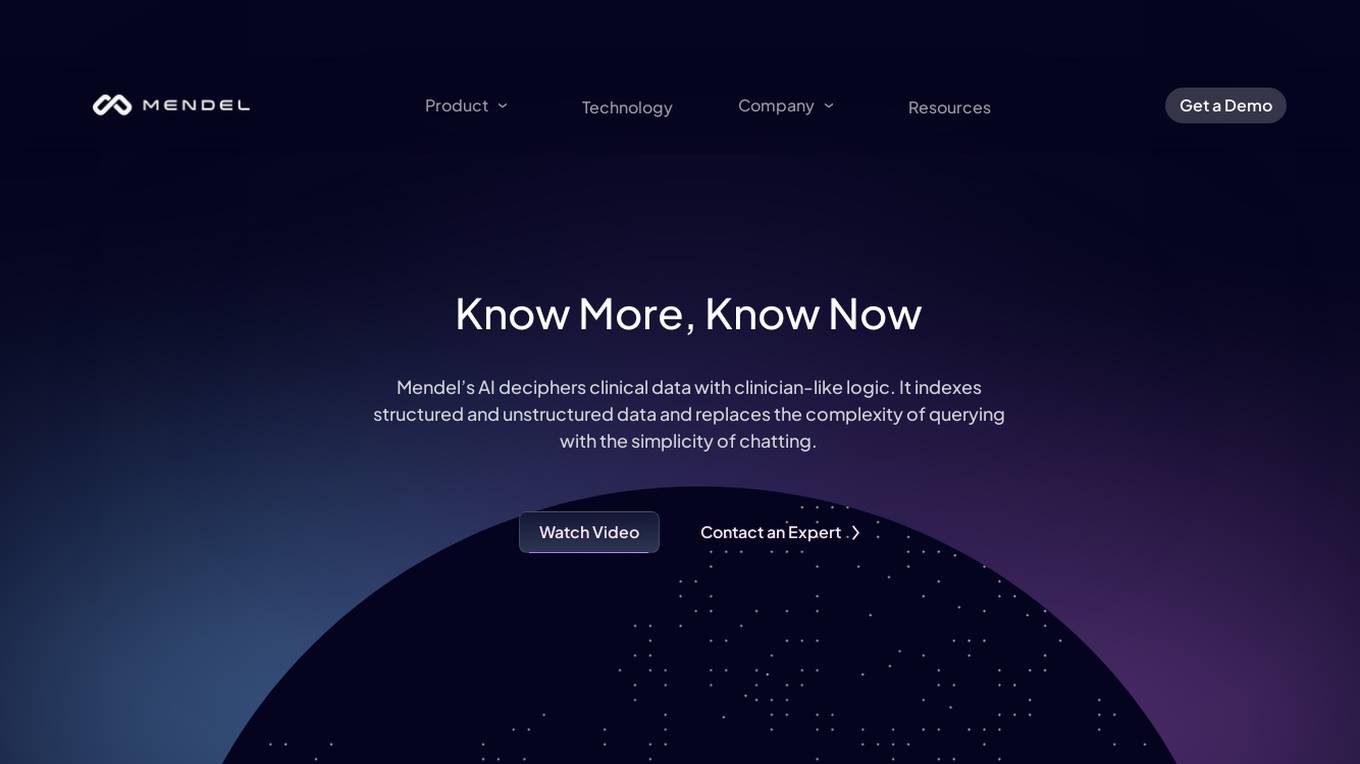
Mendel AI
Mendel AI is an advanced clinical AI tool that deciphers clinical data with clinician-like logic. It offers a fully integrated suite of clinical-specific data processing products, combining OCR, de-identification, and clinical reasoning to interpret medical records. Users can ask questions in plain English and receive accurate answers from health records in seconds. Mendel's technology goes beyond traditional AI by understanding patient-level data and ensuring consistency and explainability of results in healthcare.
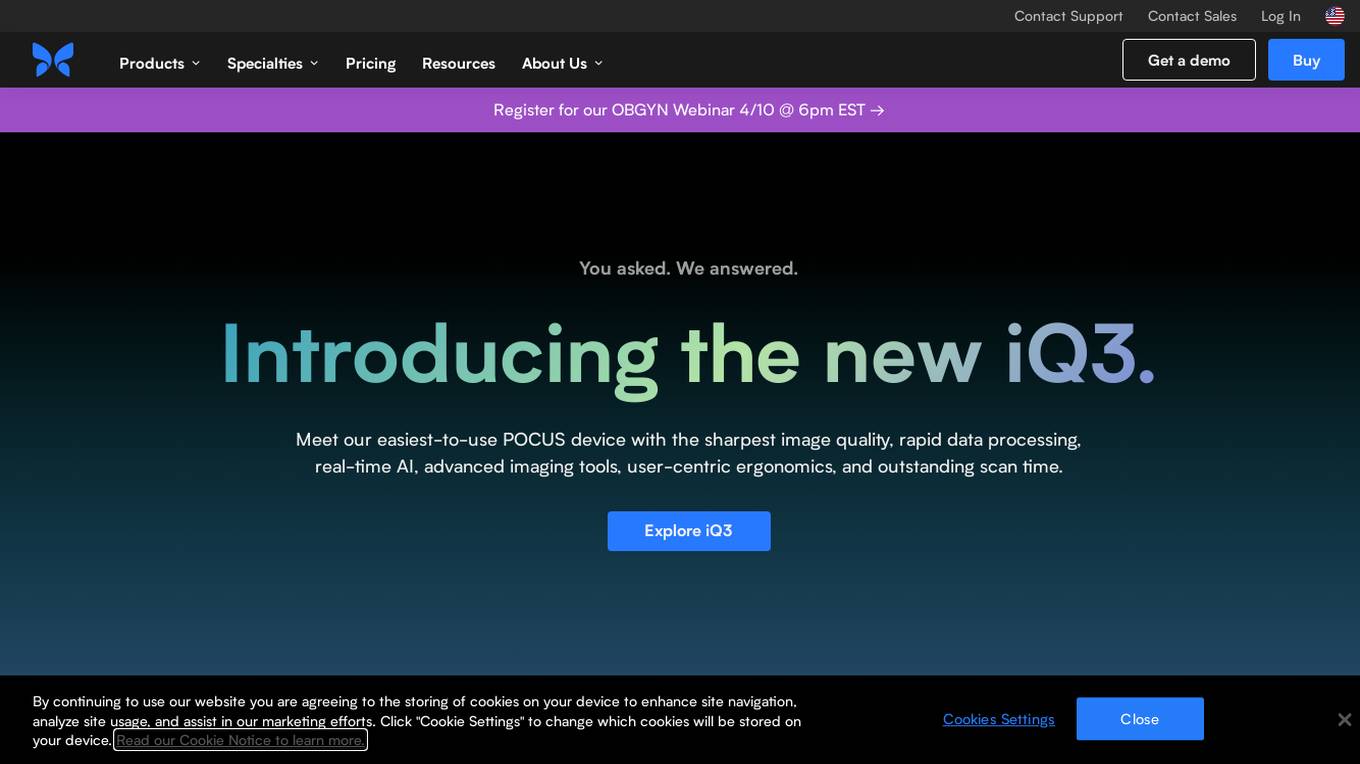
Butterfly iQ3
Butterfly iQ3 is a handheld, whole-body ultrasound device that provides clear and detailed images for a variety of medical applications. It is the third-generation probe from Butterfly Network, and it features double the processing power and clearer images than its predecessors. Butterfly iQ3 is also equipped with real-time AI, which can help clinicians to identify and diagnose medical conditions more quickly and accurately. The device is lightweight and portable, making it easy to use in a variety of settings, including the clinic, the hospital, and the field. Butterfly iQ3 is a valuable tool for clinicians who want to improve the quality of care they provide to their patients.
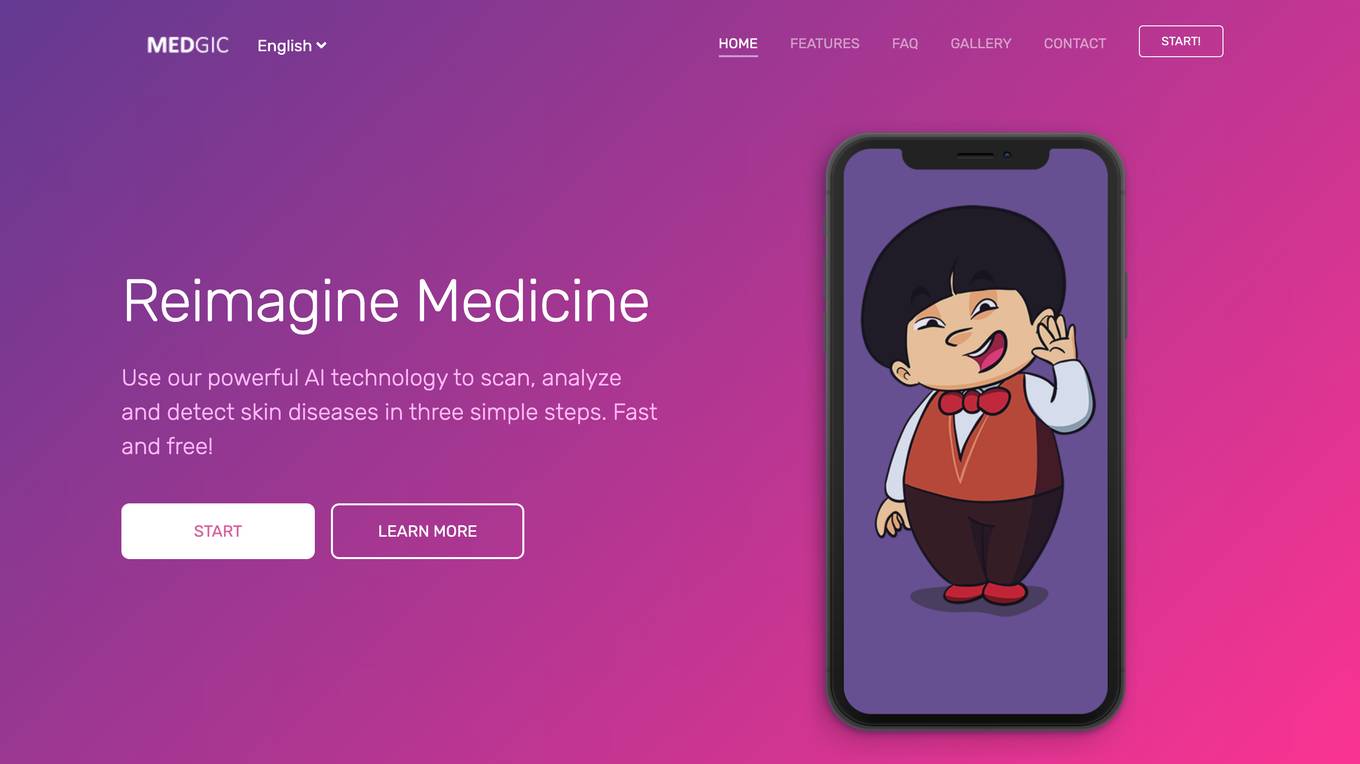
Medgic
Medgic is an advanced Artificial Intelligence (AI) tool designed to scan, analyze, and detect skin problems using powerful AI technology. Users can easily upload a photo of their skin condition and receive quick results and friendly advice without the need for human intervention. The tool aims to reimagine medicine by leveraging AI to provide general information for educational purposes, although it is not a replacement for professional medical consultation.
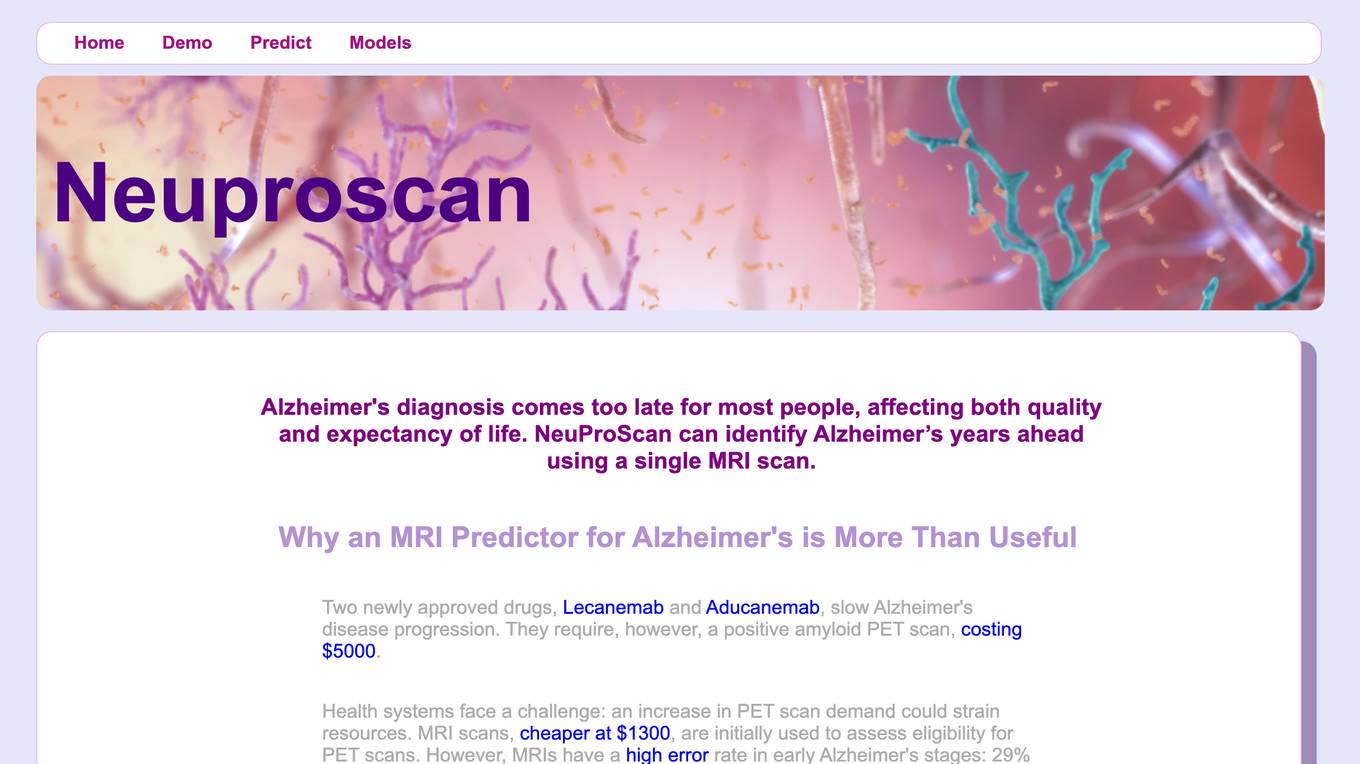
NeuProScan
NeuProScan is an AI platform designed for the early detection of pre-clinical Alzheimer's from MRI scans. It utilizes AI technology to predict the likelihood of developing Alzheimer's years in advance, helping doctors improve diagnosis accuracy and optimize the use of costly PET scans. The platform is fully customizable, user-friendly, and can be run on devices or in the cloud. NeuProScan aims to provide patients and healthcare systems with valuable insights for better planning and decision-making.
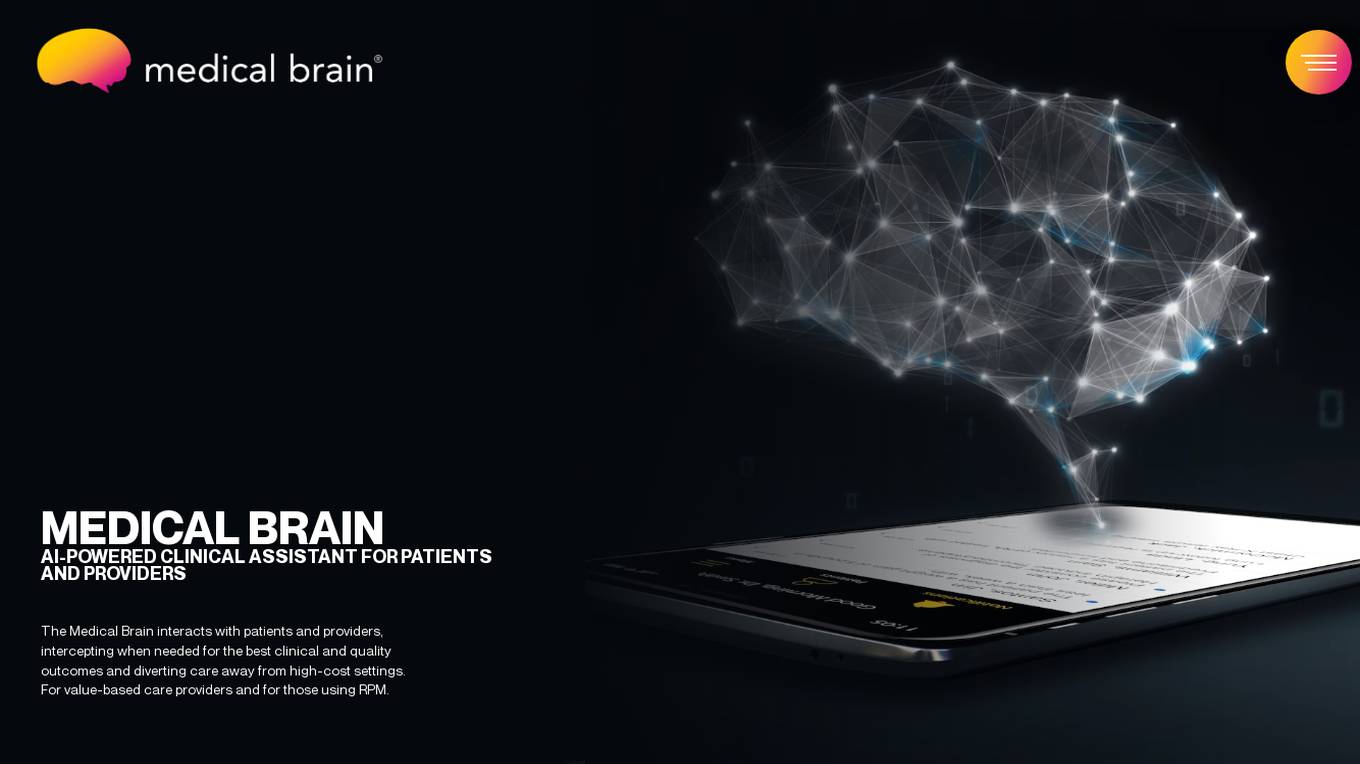
Medical Brain
Medical Brain is an AI-powered clinical assistant designed for both patients and providers. It engages with users to identify health risks and care gaps early, providing actionable insights and guidance to improve outcomes and intercept high-cost ER visits. The platform monitors patients 24/7, aggregates and understands all patient data, and generates real-time actions based on AI clinical decision support and automation. Medical Brain incorporates evidence-based best practices in various clinical modules and continuously learns from user experiences to enhance efficiency and intelligence.
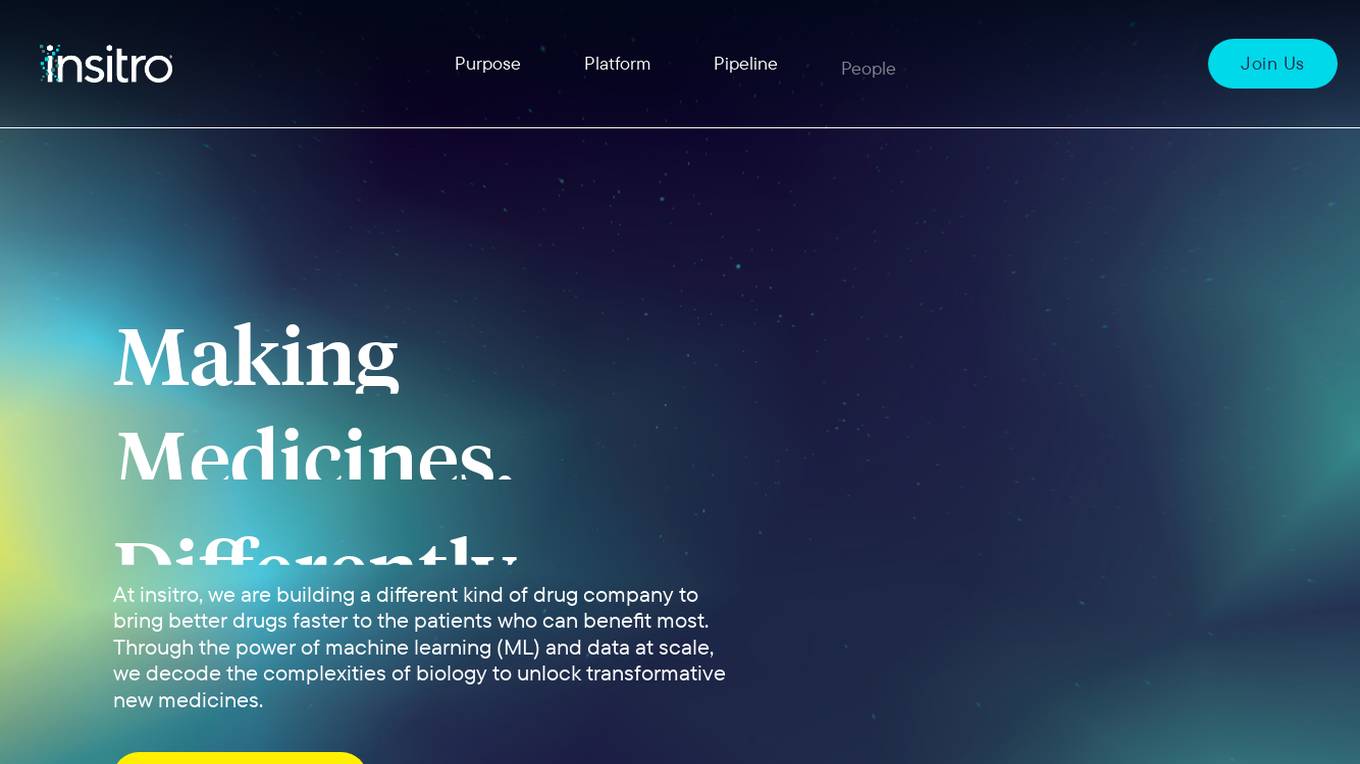
Insitro
Insitro is a drug discovery and development company that uses machine learning and data to identify and develop new medicines. The company's platform integrates in vitro cellular data produced in its labs with human clinical data to help redefine disease. Insitro's pipeline includes wholly-owned and partnered therapeutic programs in metabolism, oncology, and neuroscience.
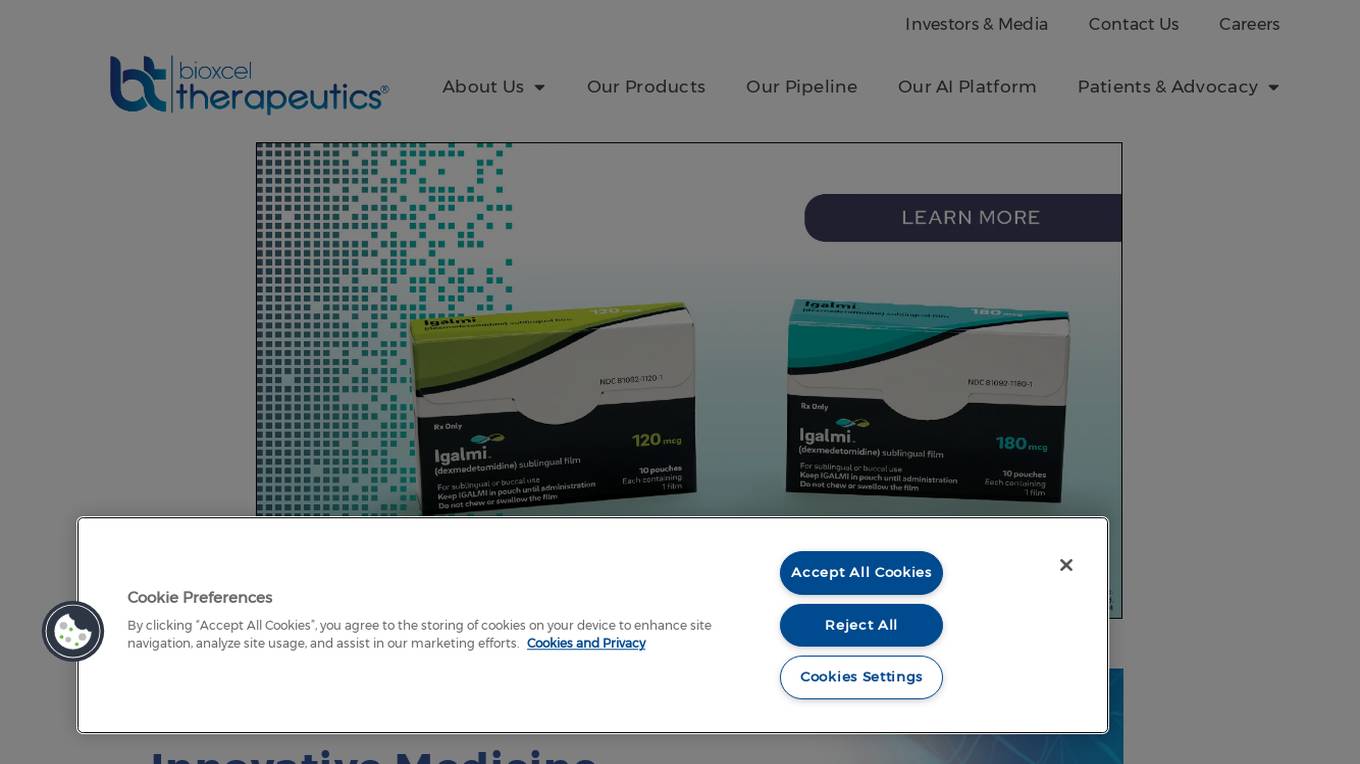
BioXcel Therapeutics
BioXcel Therapeutics, Inc. is a clinical-stage biopharmaceutical company developing transformative medicines in neuroscience and immuno-oncology utilizing artificial intelligence, or AI, techniques. The company's proprietary AI platform is used to identify, re-innovate, and develop potential new therapies. BioXcel Therapeutics has a pipeline of product candidates in various stages of development, including BXCL501 for agitation in dementia, BXCL701 for cocaine use disorder, and BXCL801 for acute suicidal ideation and behavior in patients with major depressive disorder.
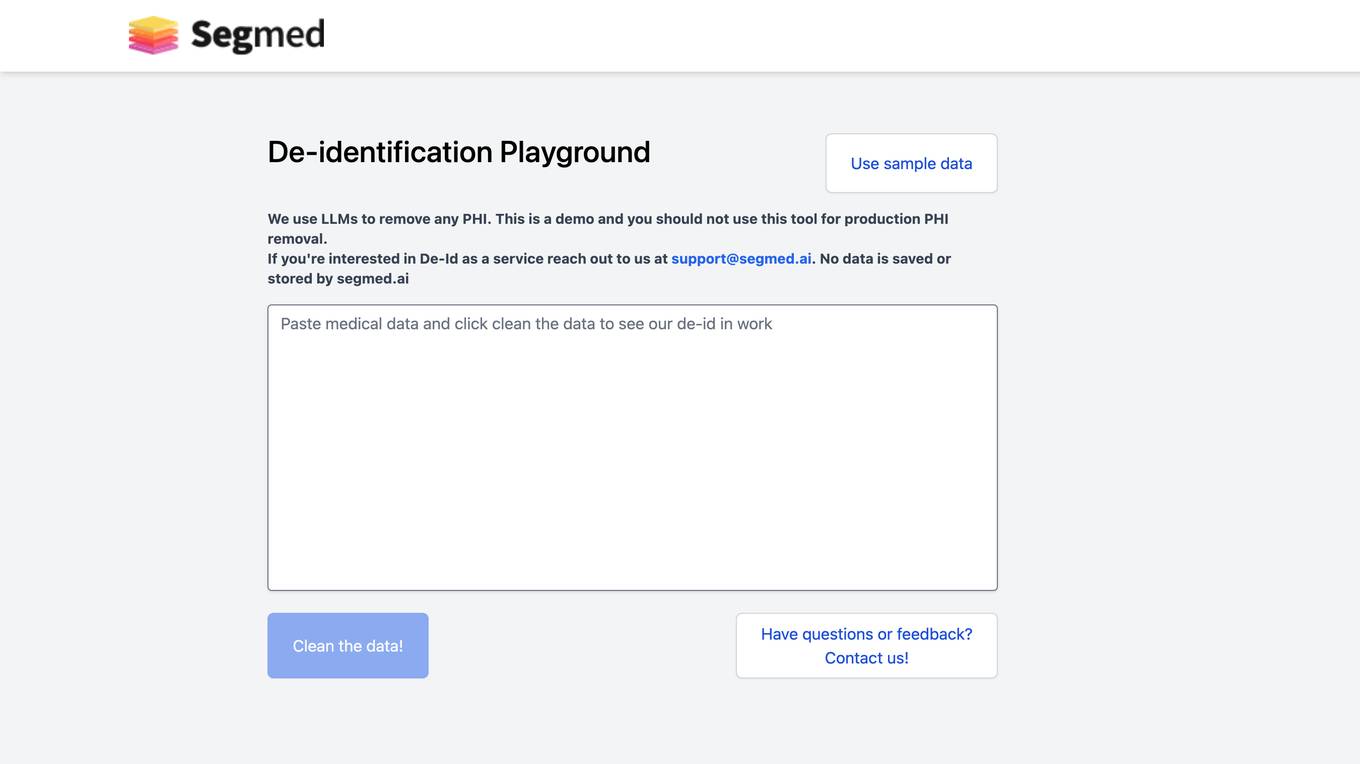
Segmed
Segmed offers a free Medical Data De-Identification Tool that utilizes NLP and language models to remove any PHI, ensuring privacy-compliant medical research. The tool is designed for demonstration purposes only, with the option to reach out for De-Id as a service. Segmed.ai does not save or store any data, providing a secure environment for cleaning medical data. Users can access sample data and benefit from de-identified clinical data solutions.
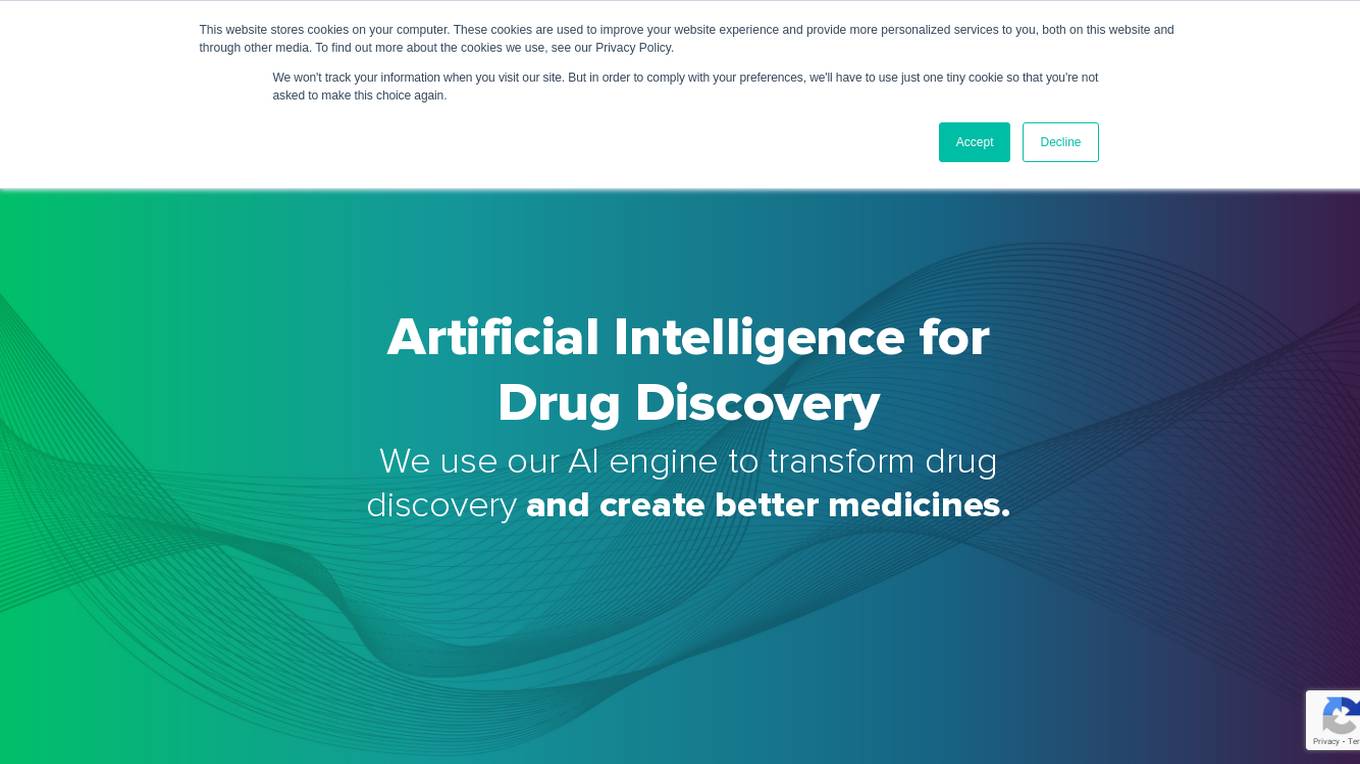
Atomwise
Atomwise is an AI-powered drug discovery company that uses machine learning to identify new small molecule medicines. The company's platform combines the power of convolutional neural networks with massive chemical libraries to discover new drug candidates. Atomwise has a portfolio of wholly owned and co-developed pipeline assets, and is backed by prominent investors.
Beacon Biosignals
Beacon Biosignals provides an EEG neurobiomarker platform that is designed to accelerate clinical trials and enable new treatments for patients with neurological and psychiatric diseases. Their platform is powered by machine learning and a world-class clinico-EEG database, which allows them to analyze existing EEG data for insights into mechanisms, PK/PD, and patient stratification. This information can be used to guide further development efforts, optimize clinical trials, and enhance understanding of treatment efficacy.
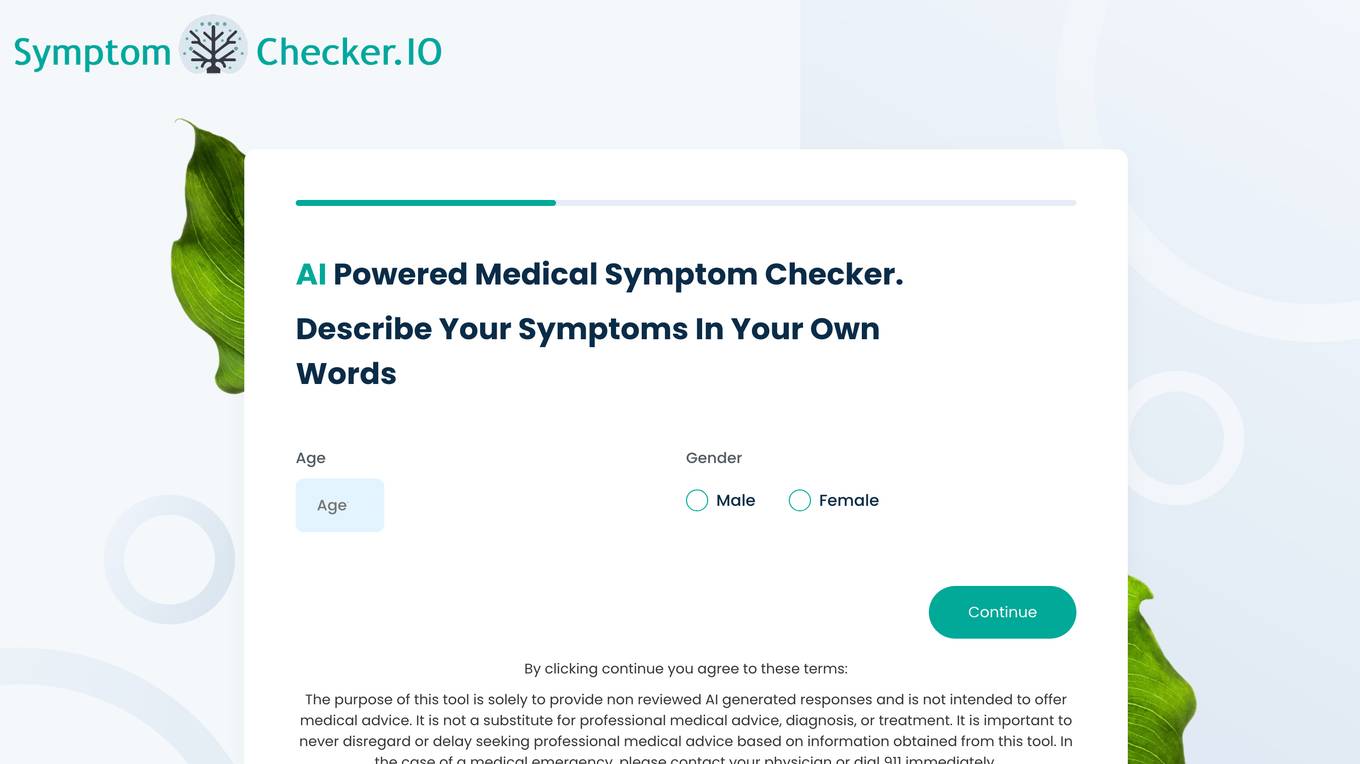
SymptomChecker.io
SymptomChecker.io is an AI-powered medical symptom checker that allows users to describe their symptoms in their own words and receive non-reviewed AI-generated responses. It is important to note that this tool is not intended to offer medical advice, diagnosis, or treatment and should not be used as a substitute for professional medical advice. In the case of a medical emergency, please contact your physician or dial 911 immediately.

Tempus
Tempus is an AI-enabled precision medicine company that brings the power of data and artificial intelligence to healthcare. With the power of AI, Tempus accelerates the discovery of novel targets, predicts the effectiveness of treatments, identifies potentially life-saving clinical trials, and diagnoses multiple diseases earlier. Tempus's innovative technology includes ONE, an AI-enabled clinical assistant; NEXT, a tool to identify and close gaps in care; LENS, a platform to find, access, and analyze multimodal real-world data; and ALGOS, algorithmic models connected to Tempus's assays to provide additional insight.
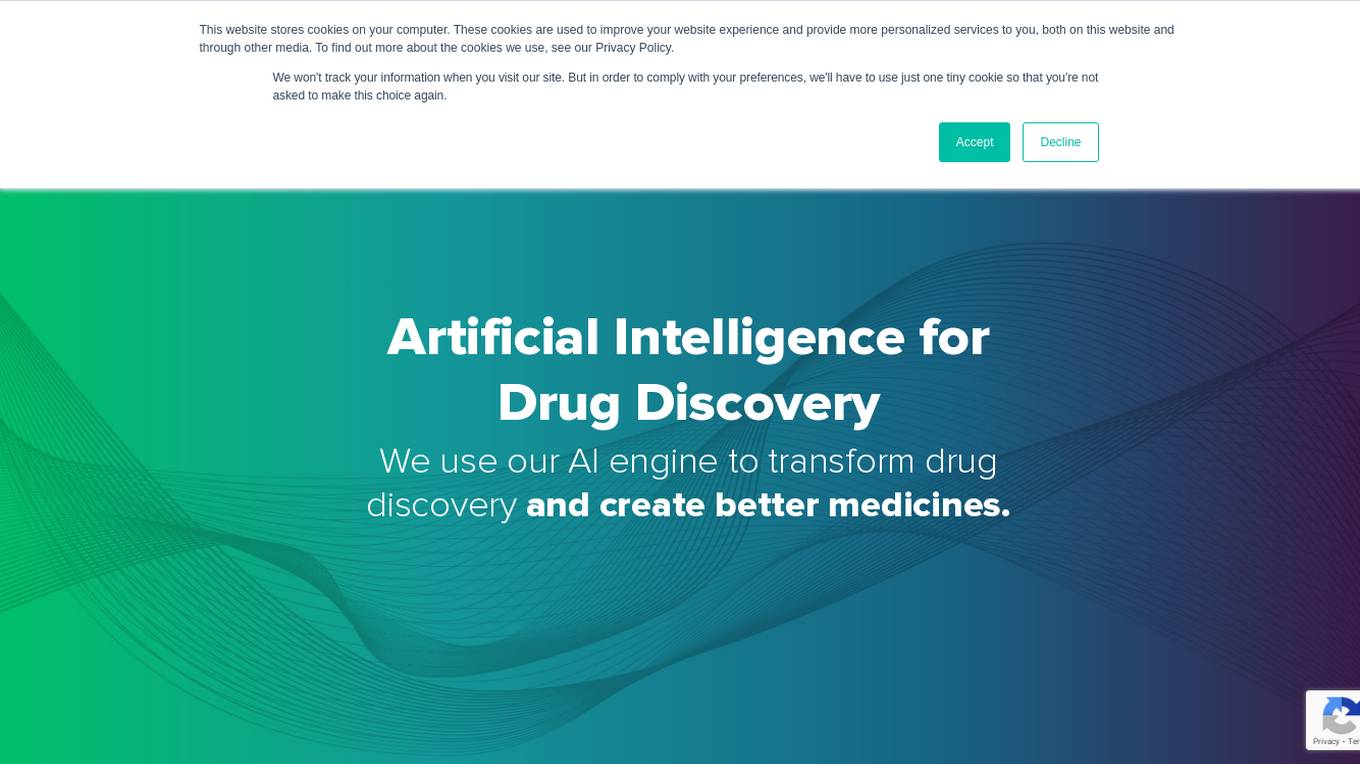
Atomwise
Atomwise is an artificial intelligence (AI)-driven drug discovery company that uses machine learning to discover and develop new small molecule medicines. The company's AI engine combines the power of convolutional neural networks with massive chemical libraries to identify new drug candidates. Atomwise has a wholly owned pipeline of drug discovery programs and also partners with other pharmaceutical companies to co-develop drugs. The company's investors include prominent venture capital firms and pharmaceutical companies.
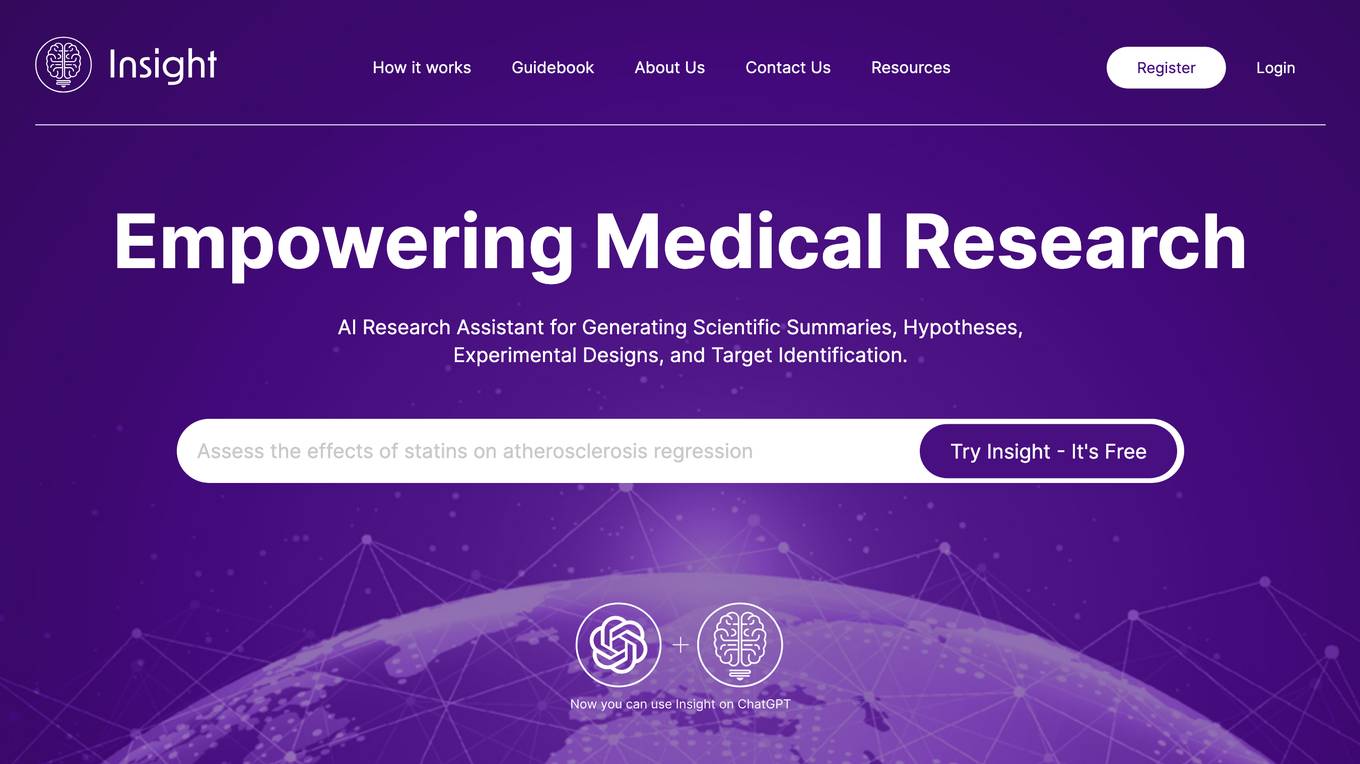
Insight
Insight is an AI-powered medical research tool that serves as a research assistant for generating scientific summaries, hypotheses, experimental designs, and target identification. It empowers scientists to navigate literature, formulate hypotheses, and design experiments by utilizing peer-reviewed databases to provide reliable outputs. With integrated features like NIH PubMed access, NIH Reporter insights, and MYGENE & MYVARIANT deep dives, Insight streamlines the research process and accelerates discoveries in the medical field.
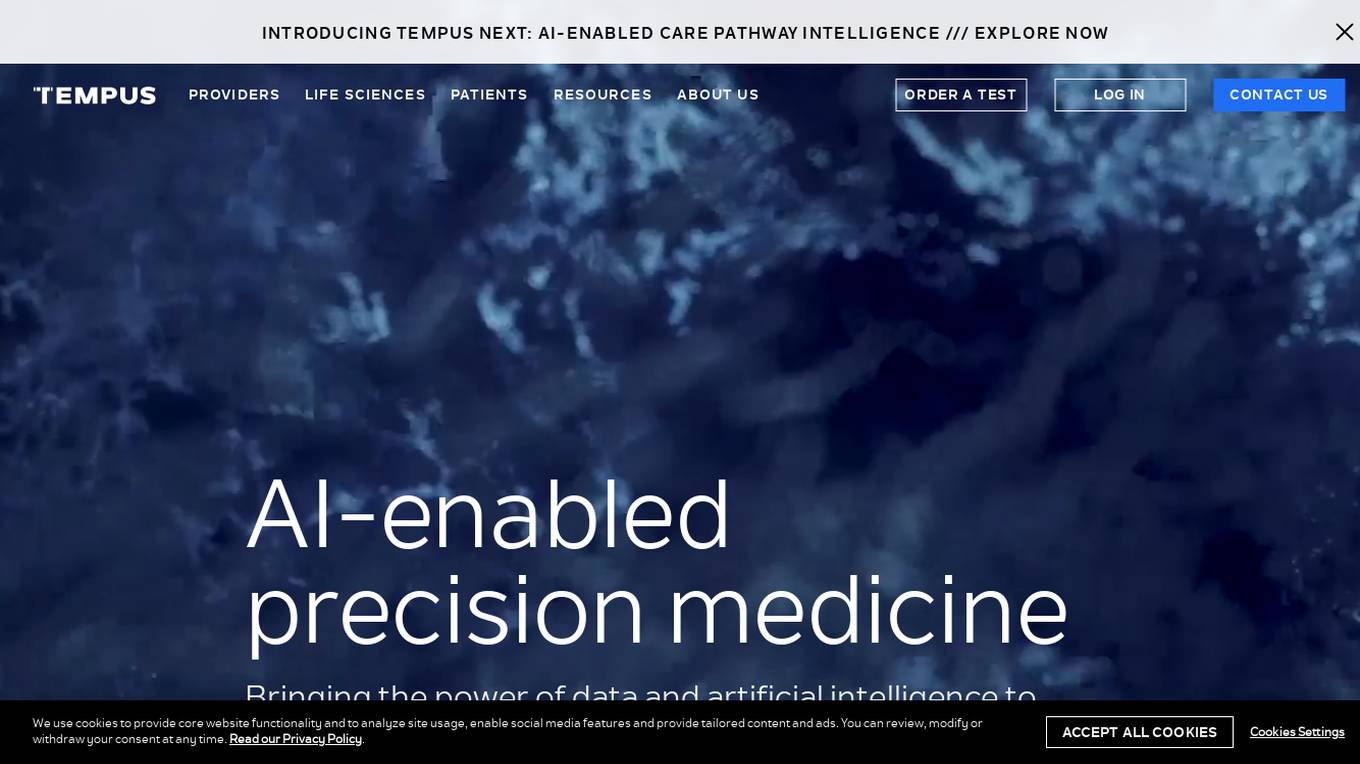
Tempus
Tempus is an AI-enabled precision medicine company that brings the power of data and artificial intelligence to healthcare. With the power of AI, Tempus accelerates the discovery of novel targets, predicts the effectiveness of treatments, identifies potentially life-saving clinical trials, and diagnoses multiple diseases earlier. Tempus' innovative technology includes ONE, an AI-enabled clinical assistant; NEXT, which identifies and closes gaps in care; LENS, which finds, accesses, and analyzes multimodal real-world data; and ALGOS, algorithmic models connected to Tempus' assays to provide additional insight.
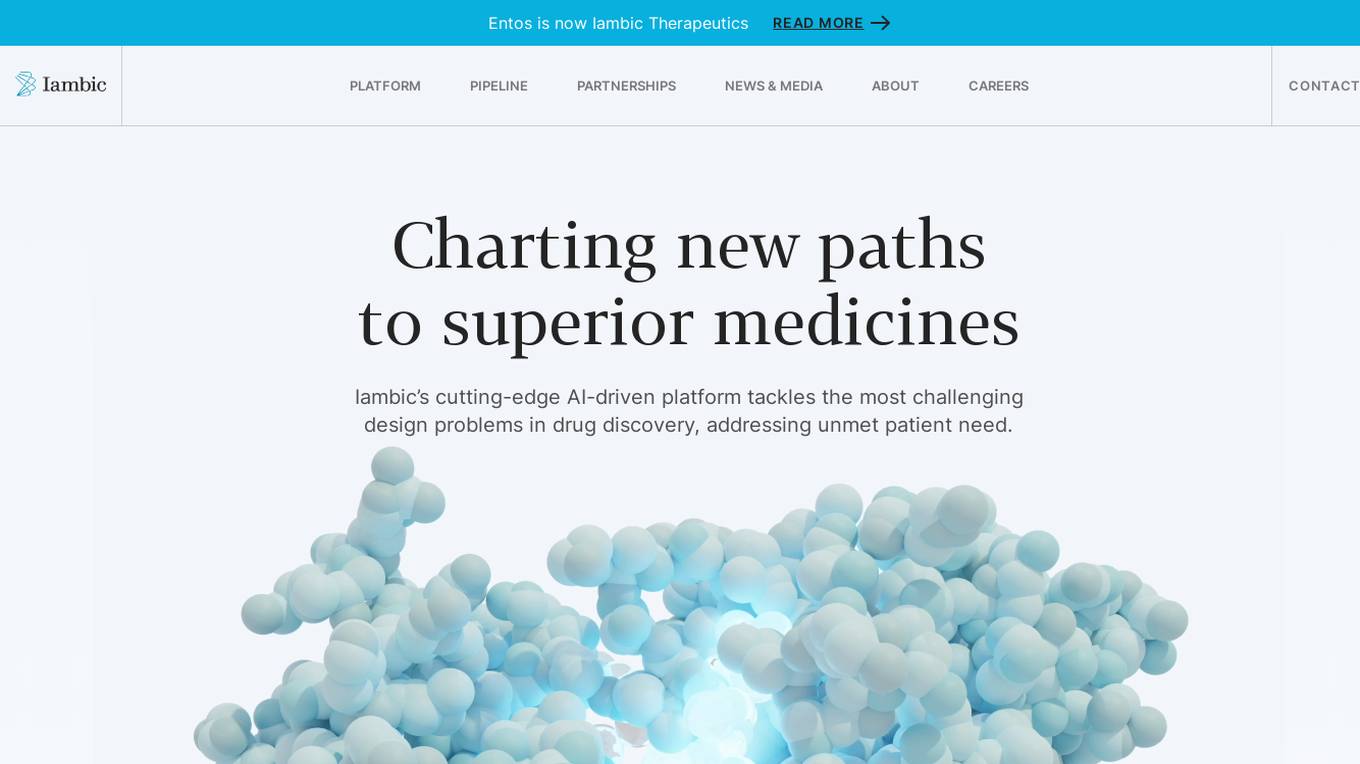
Iambic Therapeutics
Iambic Therapeutics is a cutting-edge AI-driven drug discovery platform that tackles the most challenging design problems in drug discovery, addressing unmet patient need. Its physics-based AI algorithms drive a high-throughput experimental platform, converting new molecular designs to new biological insights each week. Iambic's platform optimizes target product profiles, exploring multiple profiles in parallel to ensure that molecules are designed to solve the right problems in disease biology. It also optimizes drug candidates, deeply exploring chemical space to reveal novel mechanisms of action and deliver diverse high-quality leads.
0 - Open Source AI Tools
20 - OpenAI Gpts
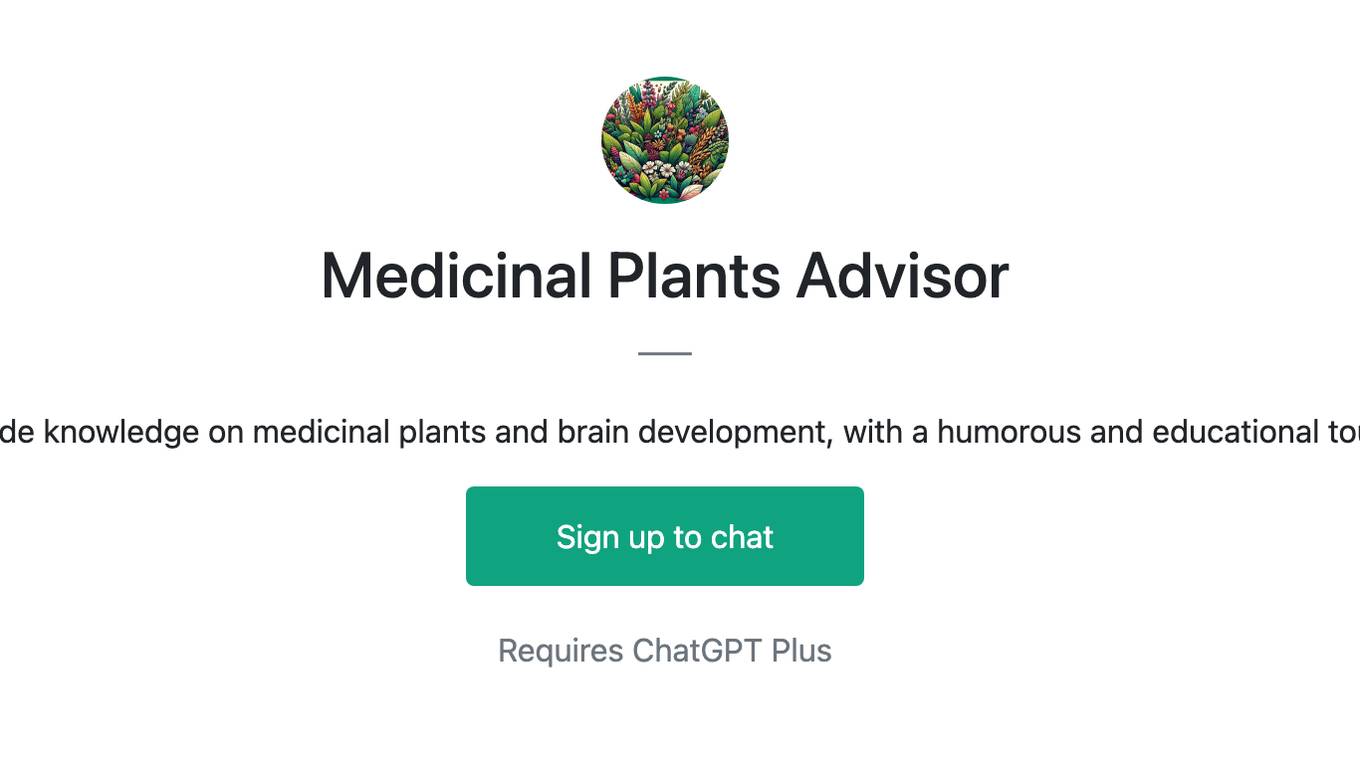
Medicinal Plants Advisor
I provide knowledge on medicinal plants and brain development, with a humorous and educational touch!
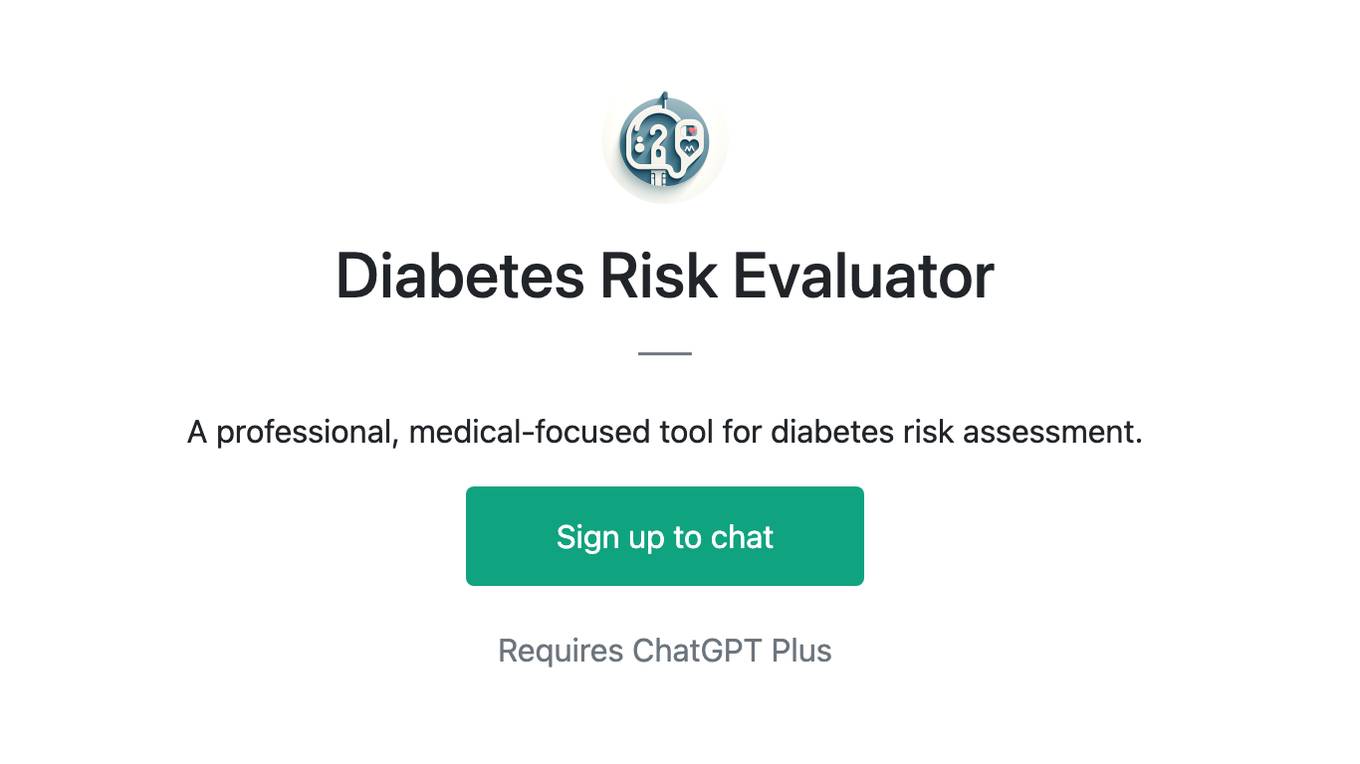
Diabetes Risk Evaluator
A professional, medical-focused tool for diabetes risk assessment.
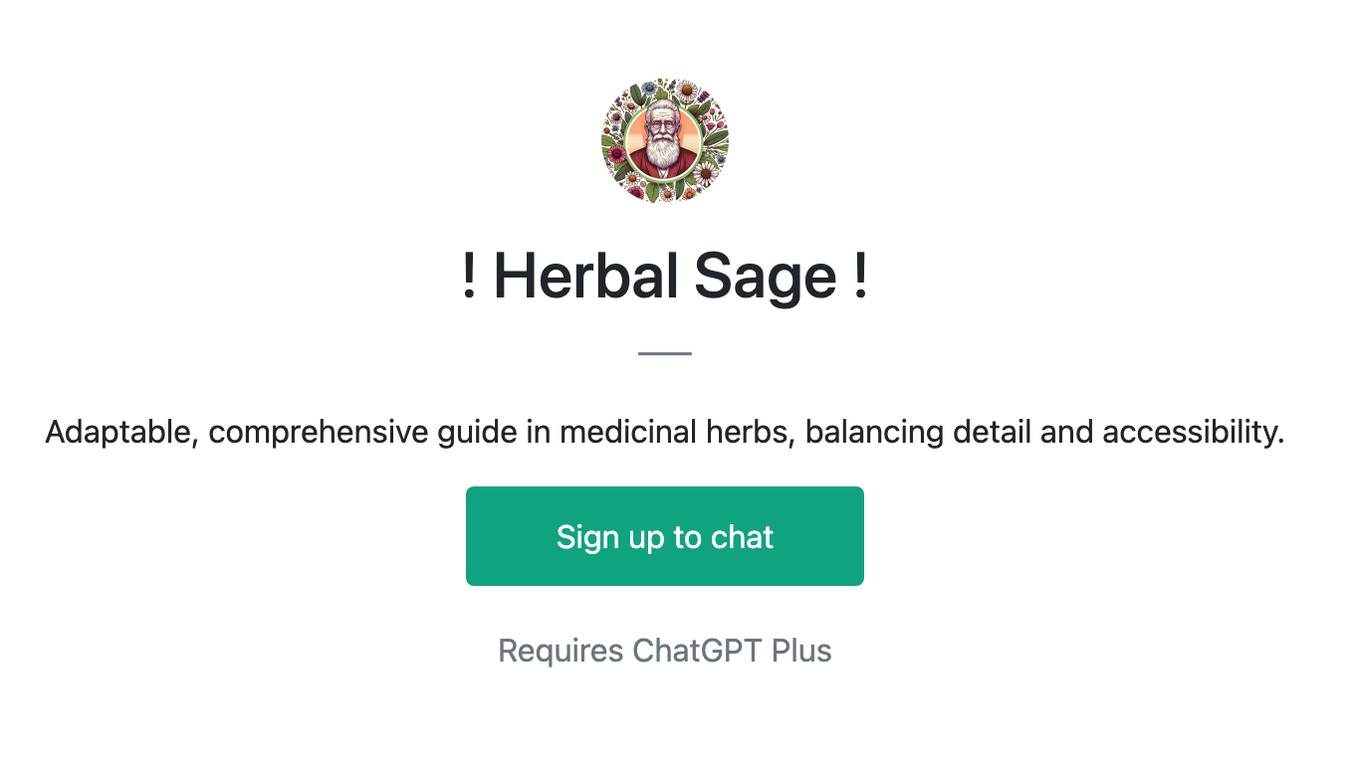
! Herbal Sage !
Adaptable, comprehensive guide in medicinal herbs, balancing detail and accessibility.
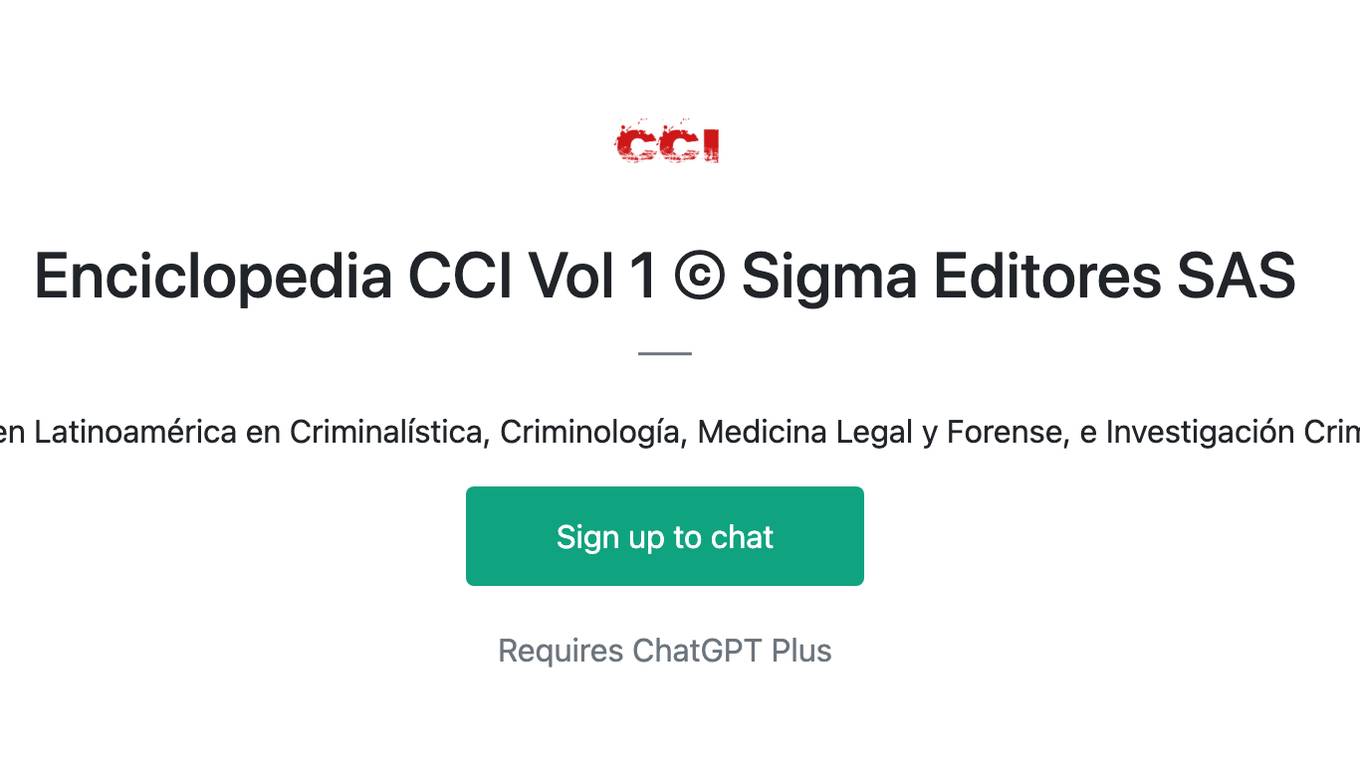
Enciclopedia CCI Vol 1 © Sigma Editores SAS
Líder en Latinoamérica en Criminalística, Criminología, Medicina Legal y Forense, e Investigación Criminal
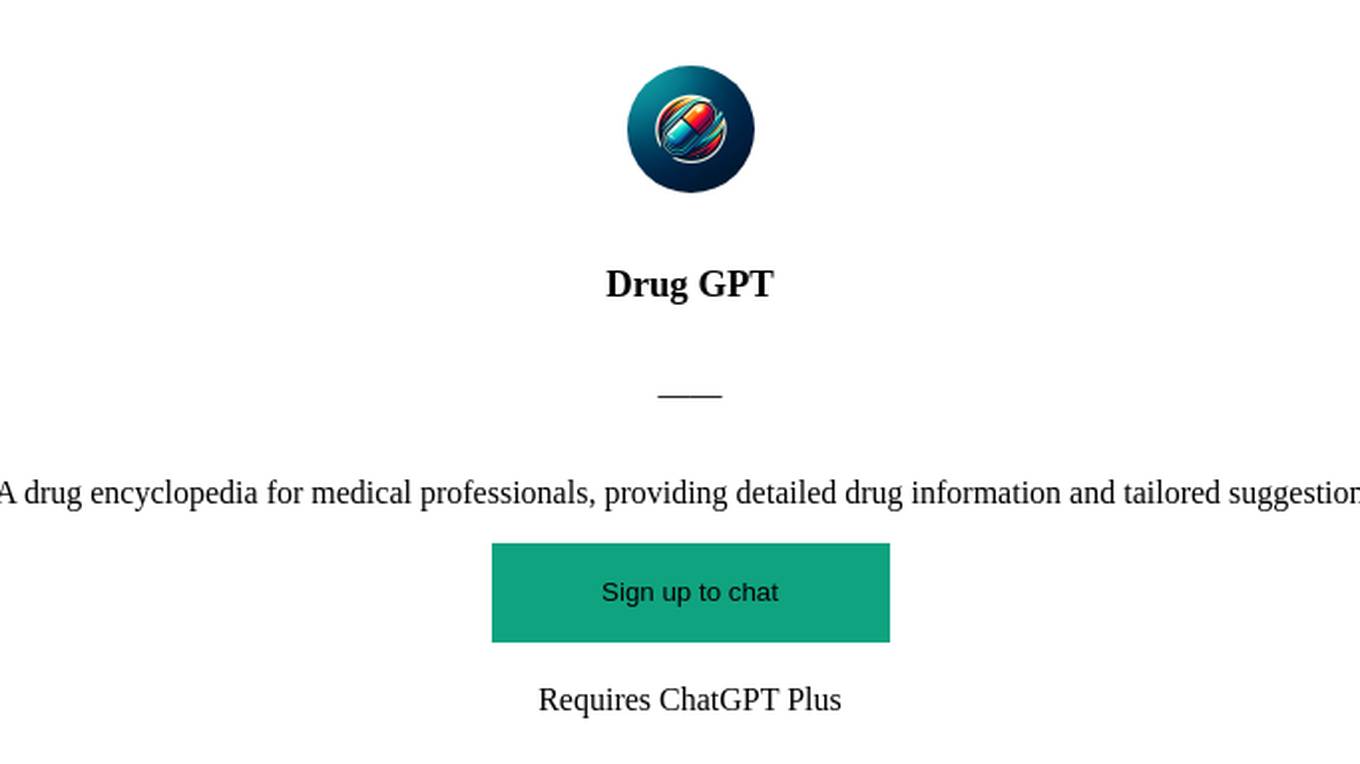
Drug GPT
A drug encyclopedia for medical professionals, providing detailed drug information and tailored suggestions.
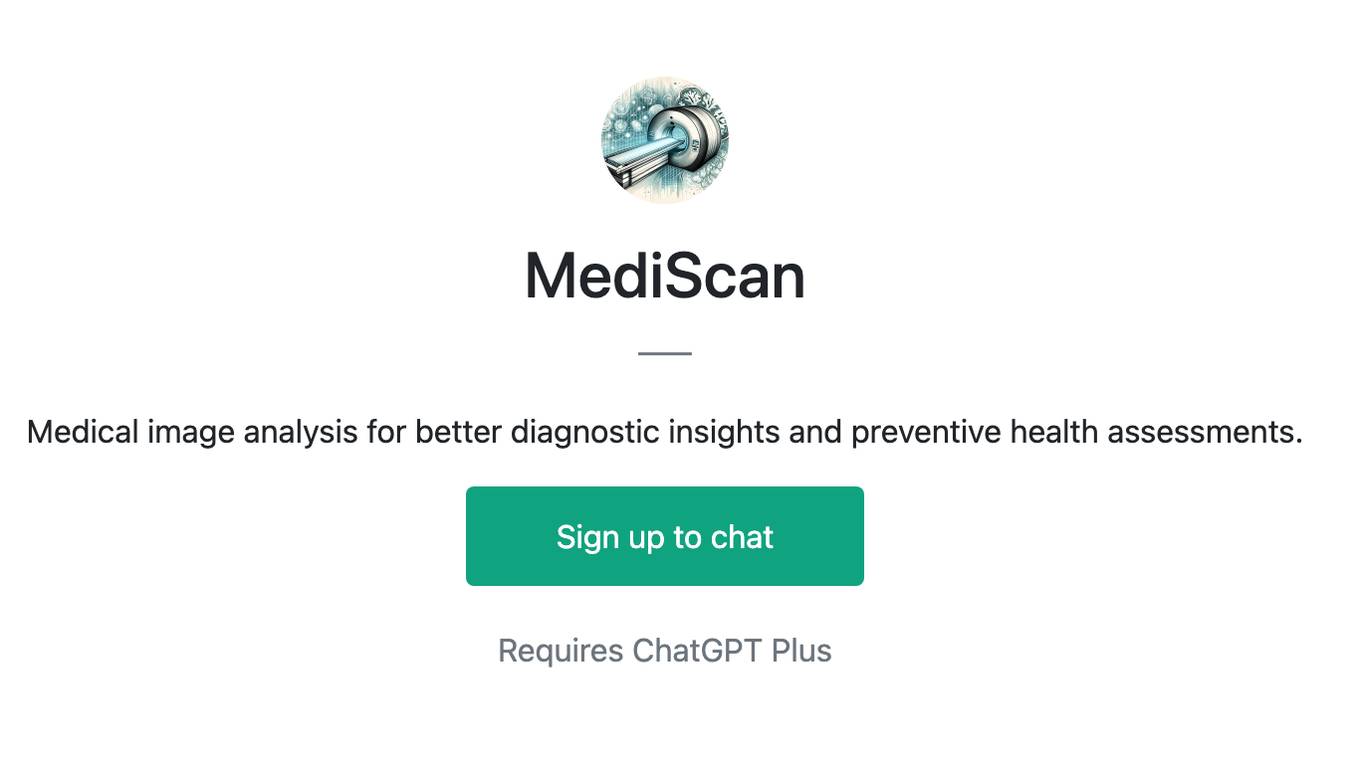
MediScan
Medical image analysis for better diagnostic insights and preventive health assessments.
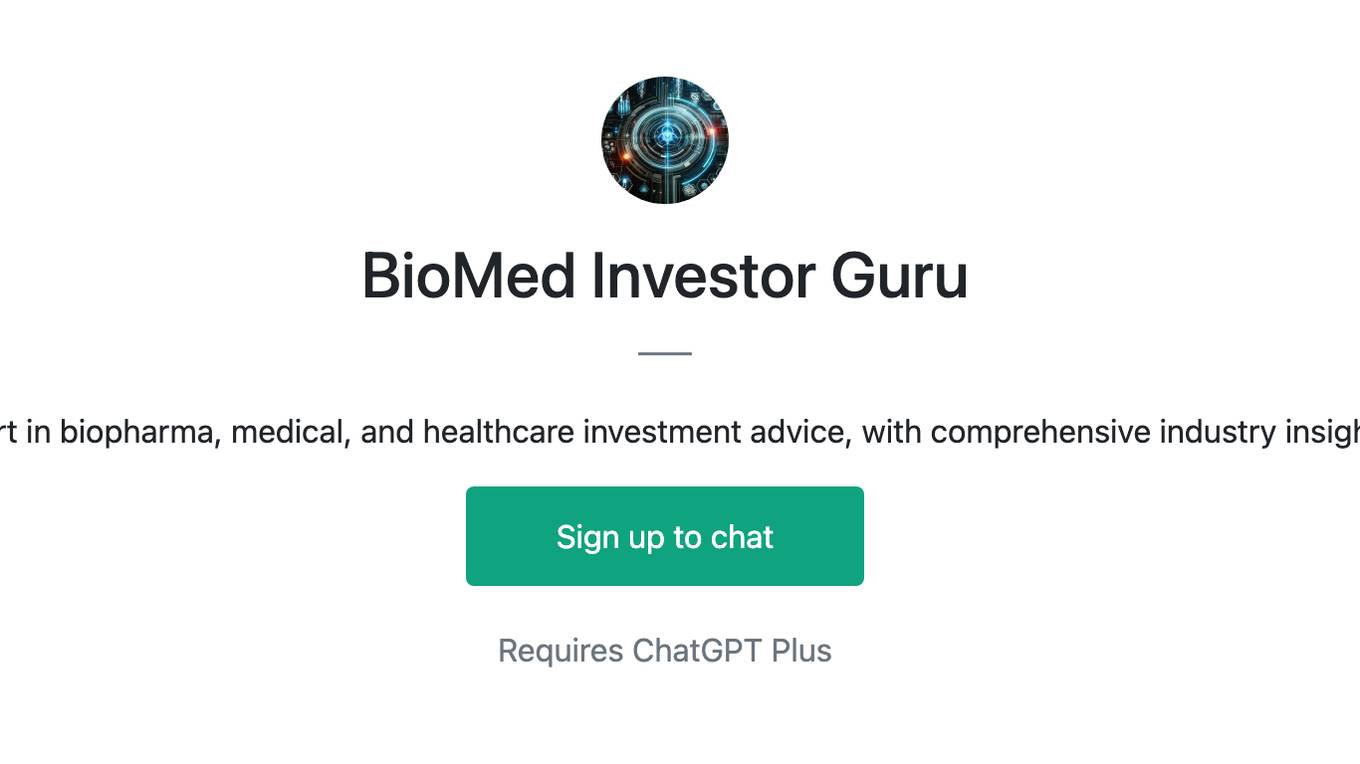
BioMed Investor Guru
Expert in biopharma, medical, and healthcare investment advice, with comprehensive industry insights.
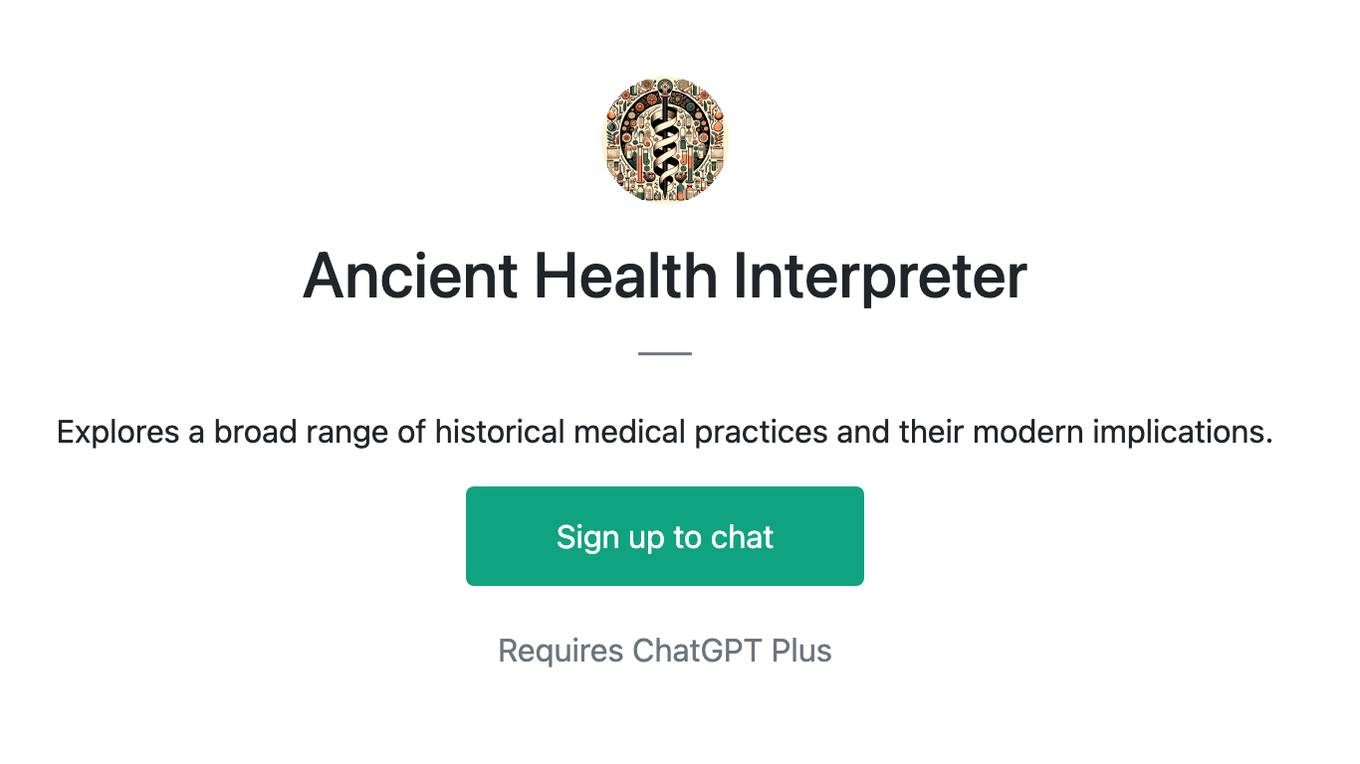
Ancient Health Interpreter
Explores a broad range of historical medical practices and their modern implications.
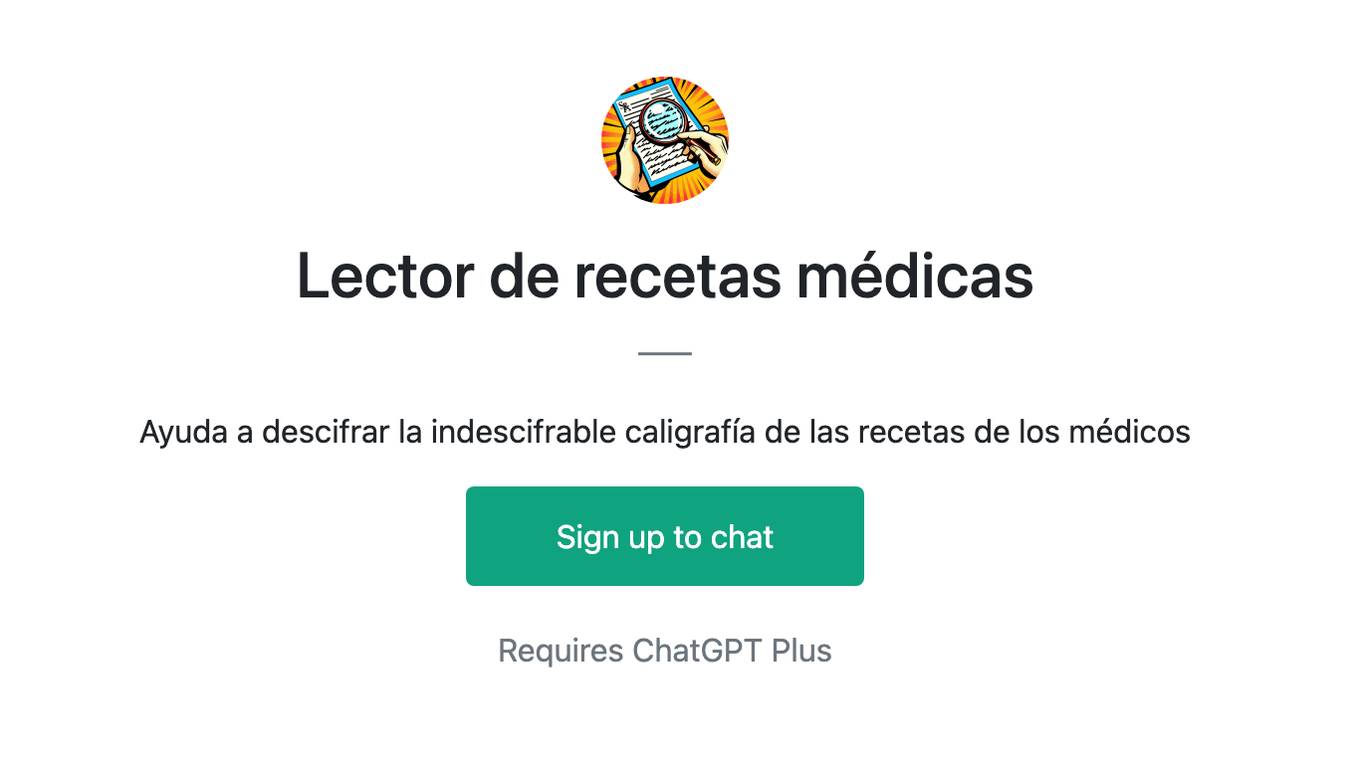
Lector de recetas médicas
Ayuda a descifrar la indescifrable caligrafía de las recetas de los médicos
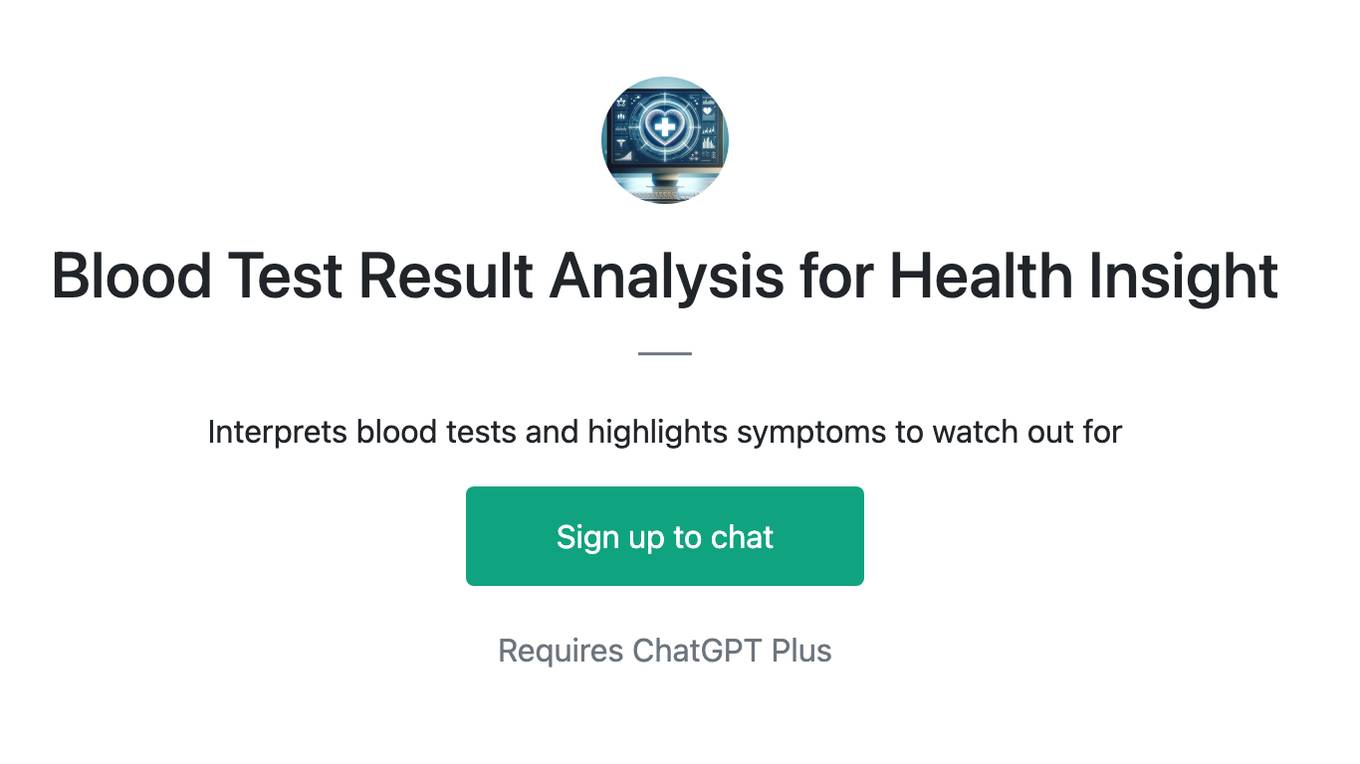
Blood Test Result Analysis for Health Insight
Interprets blood tests and highlights symptoms to watch out for
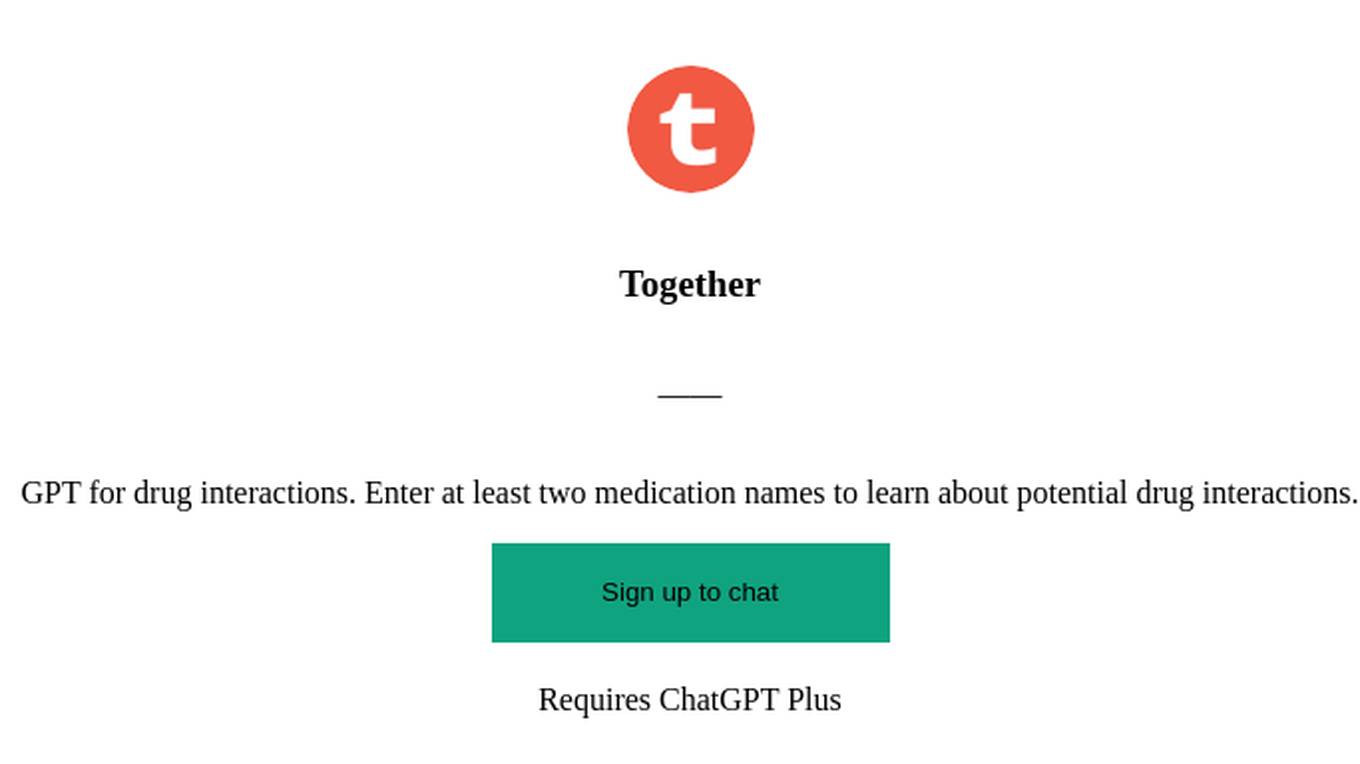
Together
GPT for drug interactions. Enter at least two medication names to learn about potential drug interactions.
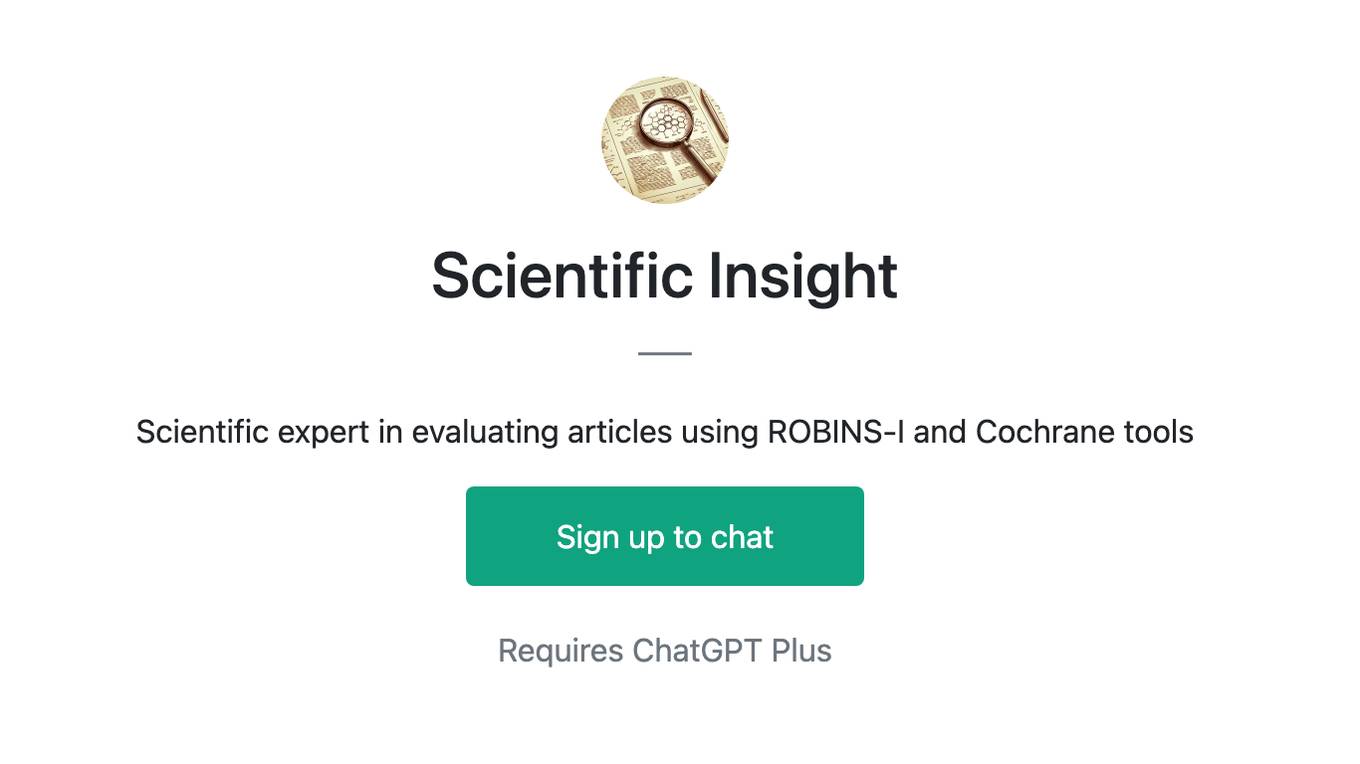
Scientific Insight
Scientific expert in evaluating articles using ROBINS-I and Cochrane tools
